Shows
 Love & Philosophy#66 Harmonizing the Dao with analytic philosopher Eric SchwitzgebelSend a love message This show is about harmonizing the Dao and embracing the world's weirdness at once. Our guest is Eric Schwitzgebel, an analytic philosopher and professor at the University of California Riverside. As they unfold the Dao and the world’s weirdness, Andrea and Eric explore everything from robot consciousness, the love darts of snails, triads, axiology, and the philosophy of opening. Eric shares his journey into classical Chinese philosophy, how we understands harmonizing with the Dao, some of his writings about consciousness, and the importance of appreciating the world's inherent weirdness. This conversation offers a d...2025-07-241h 23
Love & Philosophy#66 Harmonizing the Dao with analytic philosopher Eric SchwitzgebelSend a love message This show is about harmonizing the Dao and embracing the world's weirdness at once. Our guest is Eric Schwitzgebel, an analytic philosopher and professor at the University of California Riverside. As they unfold the Dao and the world’s weirdness, Andrea and Eric explore everything from robot consciousness, the love darts of snails, triads, axiology, and the philosophy of opening. Eric shares his journey into classical Chinese philosophy, how we understands harmonizing with the Dao, some of his writings about consciousness, and the importance of appreciating the world's inherent weirdness. This conversation offers a d...2025-07-241h 23 OverthinkWeirdness with Eric SchwitzgebelAll metaphysical theories are…really weird. In episode 134 of Overthink, Ellie and David chat with Eric Schwitzgebel about his book Weirdness of the World. They think through the difference between weirdness and bizarreness, the nonsensical nature of philosophical theories, and whether we should all just agree with Occam’s razor that the simplest explanation is always best.Is the recent theory that we’re all living in a simulation really that strange? Is it stranger than the idealist metaphysics of Plato or the atomism of Lucretius? And why are philosophical theories doomed to weirdness? Are we the weird ones, or do...2025-07-1556 min
OverthinkWeirdness with Eric SchwitzgebelAll metaphysical theories are…really weird. In episode 134 of Overthink, Ellie and David chat with Eric Schwitzgebel about his book Weirdness of the World. They think through the difference between weirdness and bizarreness, the nonsensical nature of philosophical theories, and whether we should all just agree with Occam’s razor that the simplest explanation is always best.Is the recent theory that we’re all living in a simulation really that strange? Is it stranger than the idealist metaphysics of Plato or the atomism of Lucretius? And why are philosophical theories doomed to weirdness? Are we the weird ones, or do...2025-07-1556 min Uncomfortable Conversations with Josh Szeps"A.I., Artificial Souls, and the Crazy Conundrum of Consciousness" with Philosopher Eric SchwitzgebelLet's take a break from the news cycle for a moment, shall we? There's a lot of cool shit to ponder that's more important and more fascinating. Like, how does the gooey blob of atoms between your ears generate all of your experiences? And are we on track to producing machines that feel as alive as you? Eric Schwitzgebel is a legendary professor of philosophy at UC Berkeley and an important voice in Silicon Valley's conversations about ethical artificial sentience. He and Josh muse on the various explanations of what your experiences actually are at their most...2025-06-231h 04
Uncomfortable Conversations with Josh Szeps"A.I., Artificial Souls, and the Crazy Conundrum of Consciousness" with Philosopher Eric SchwitzgebelLet's take a break from the news cycle for a moment, shall we? There's a lot of cool shit to ponder that's more important and more fascinating. Like, how does the gooey blob of atoms between your ears generate all of your experiences? And are we on track to producing machines that feel as alive as you? Eric Schwitzgebel is a legendary professor of philosophy at UC Berkeley and an important voice in Silicon Valley's conversations about ethical artificial sentience. He and Josh muse on the various explanations of what your experiences actually are at their most...2025-06-231h 04 Culture Club.Why Aren't You Hosting Parties?Why are people calling New York City influencers boring? Are we in a party deficit? And should we be compartmentalising all of our different selves? A TikTok by @martinifeeny has garnered millions of views after she declared: “I hate all of the New York influencers. I think that they're boring as fuck and they're all carbon copies of each other.” This has sparked a week of TikTok discourse as users question why they're following rich, white influencers. Spoiler alert: The app is a microcosm of society. We reference an article by Stephanie McNeal for Glamour. 2025-03-1743 min
Culture Club.Why Aren't You Hosting Parties?Why are people calling New York City influencers boring? Are we in a party deficit? And should we be compartmentalising all of our different selves? A TikTok by @martinifeeny has garnered millions of views after she declared: “I hate all of the New York influencers. I think that they're boring as fuck and they're all carbon copies of each other.” This has sparked a week of TikTok discourse as users question why they're following rich, white influencers. Spoiler alert: The app is a microcosm of society. We reference an article by Stephanie McNeal for Glamour. 2025-03-1743 min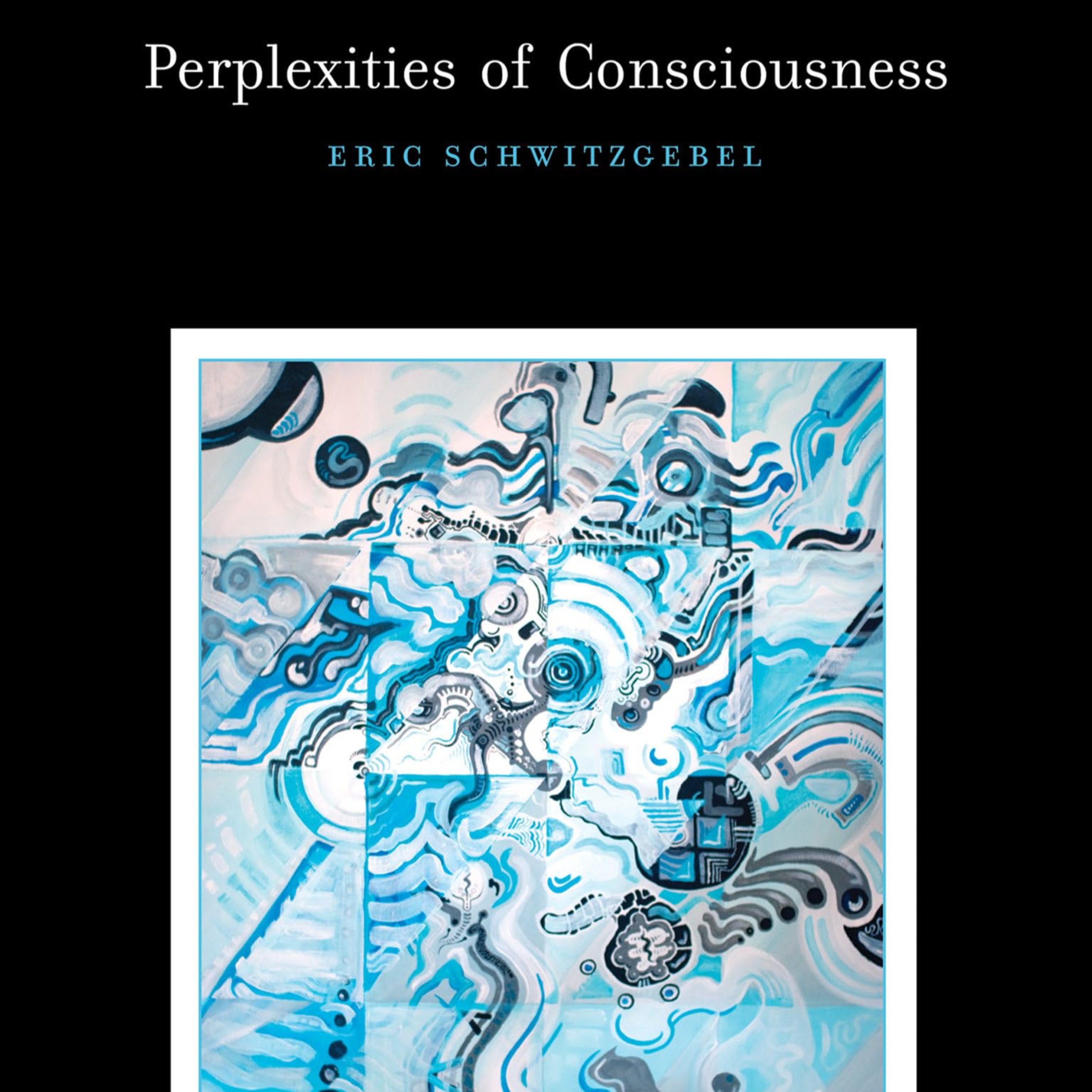 Branches of Philosophy Podcast[153] Perplexities of Consciousness By Eric SchwitzgebelAi generated introduction and summary of "Perplexities of Consciousness"By Eric Schwitzgebel 2011
A philosopher argues that we know little about our own inner lives.Do you dream in color? If you answer Yes, how can you be sure? Before you recount your vivid memory of a dream featuring all the colors of the rainbow, consider that in the 1950s researchers found that most people reported dreaming in black and white. In the 1960s, when most movies were in color and more people had color television sets, the vast majority of reported dreams contained color. The most likely...2025-01-0428 min
Branches of Philosophy Podcast[153] Perplexities of Consciousness By Eric SchwitzgebelAi generated introduction and summary of "Perplexities of Consciousness"By Eric Schwitzgebel 2011
A philosopher argues that we know little about our own inner lives.Do you dream in color? If you answer Yes, how can you be sure? Before you recount your vivid memory of a dream featuring all the colors of the rainbow, consider that in the 1950s researchers found that most people reported dreaming in black and white. In the 1960s, when most movies were in color and more people had color television sets, the vast majority of reported dreams contained color. The most likely...2025-01-0428 min A Song Called LifeEpisode #199: Dr. Eric SchwitzgebelIn Episode #199, philosopher Eric Schwitzgebel joins Osi to explore the bizarre nature of our existence. Are we living in a simulated reality, or is our universe just a pocket within a vast, unknown structure? Is consciousness entirely physical, or does it involve something nonphysical? And why might some of the most fundamental questions about the mind and the cosmos be beyond human understanding? In his latest book, The Weirdness of the World, Eric delves into these questions and more.
Eric Schwitzgebel is a professor of philosophy at the University of California, Riverside, with research...2024-11-2350 min
A Song Called LifeEpisode #199: Dr. Eric SchwitzgebelIn Episode #199, philosopher Eric Schwitzgebel joins Osi to explore the bizarre nature of our existence. Are we living in a simulated reality, or is our universe just a pocket within a vast, unknown structure? Is consciousness entirely physical, or does it involve something nonphysical? And why might some of the most fundamental questions about the mind and the cosmos be beyond human understanding? In his latest book, The Weirdness of the World, Eric delves into these questions and more.
Eric Schwitzgebel is a professor of philosophy at the University of California, Riverside, with research...2024-11-2350 min Ten ThousandFiction: Eric SchwitzgebelThe fiction series begins! First up, we hear from Dr. Eric Schwitzgebel -- professor of philosophy at UC Riverside, but also the author of short stories that explore philosophical themes.
We discuss the necessity of considering the audience when thinking about good fiction, formula in genres, and the challenges and power of speculative fiction, among other topics.
Links:
Dr. Schwitzgebel at UC Riverside
The Splintered Mind
Themes and Aims of My Science Fiction
"How to Remember Perfectly"
"The Turing Machines of Babel"
The Weirdness of the World
Philosophy...2024-10-2834 min
Ten ThousandFiction: Eric SchwitzgebelThe fiction series begins! First up, we hear from Dr. Eric Schwitzgebel -- professor of philosophy at UC Riverside, but also the author of short stories that explore philosophical themes.
We discuss the necessity of considering the audience when thinking about good fiction, formula in genres, and the challenges and power of speculative fiction, among other topics.
Links:
Dr. Schwitzgebel at UC Riverside
The Splintered Mind
Themes and Aims of My Science Fiction
"How to Remember Perfectly"
"The Turing Machines of Babel"
The Weirdness of the World
Philosophy...2024-10-2834 min Clarkesworld MagazineHow to Remember Perfectly by Eric Schwitzgebel (audio)This episode features "How to Remember Perfectly" written by Eric Schwitzgebel. Published in the September 2024 issue of Clarkesworld Magazine and read by Kate Baker.
The text version of this story can be found at:
https://clarkesworldmagazine.com/schwitzgebel_09_24
Support us on Patreon at https://www.patreon.com/join/clarkesworld?2024-09-2536 min
Clarkesworld MagazineHow to Remember Perfectly by Eric Schwitzgebel (audio)This episode features "How to Remember Perfectly" written by Eric Schwitzgebel. Published in the September 2024 issue of Clarkesworld Magazine and read by Kate Baker.
The text version of this story can be found at:
https://clarkesworldmagazine.com/schwitzgebel_09_24
Support us on Patreon at https://www.patreon.com/join/clarkesworld?2024-09-2536 min EA Forum Podcast (Curated & popular)“My top 10 picks from 200 episodes of the 80k podcast” by JWS 🔸 Intro I think the 80,000 Hours Podcast is a great show. Despite the world of podcasts overflowing with content to choose from, it's reliably been a high-quality production that's been a regular part of my listening habits ever since I discovered it. It was also probably one of the first routes I become more aware of the EA community, which I suspect I might not be alone by.[1] So, as the podcast numbers ticked up, the vague idea to write up a post shouting out some of my favourite episodes took root. I didn't get far...2024-09-1713 min
EA Forum Podcast (Curated & popular)“My top 10 picks from 200 episodes of the 80k podcast” by JWS 🔸 Intro I think the 80,000 Hours Podcast is a great show. Despite the world of podcasts overflowing with content to choose from, it's reliably been a high-quality production that's been a regular part of my listening habits ever since I discovered it. It was also probably one of the first routes I become more aware of the EA community, which I suspect I might not be alone by.[1] So, as the podcast numbers ticked up, the vague idea to write up a post shouting out some of my favourite episodes took root. I didn't get far...2024-09-1713 min EA Forum Podcast (Curated & popular)“My top 10 picks from 200 episodes of the 80k podcast” by JWS 🔸 Intro I think the 80,000 Hours Podcast is a great show. Despite the world of podcasts overflowing with content to choose from, it's reliably been a high-quality production that's been a regular part of my listening habits ever since I discovered it. It was also probably one of the first routes I become more aware of the EA community, which I suspect I might not be alone by.[1] So, as the podcast numbers ticked up, the vague idea to write up a post shouting out some of my favourite episodes took root. I didn't get far...2024-09-1713 min
EA Forum Podcast (Curated & popular)“My top 10 picks from 200 episodes of the 80k podcast” by JWS 🔸 Intro I think the 80,000 Hours Podcast is a great show. Despite the world of podcasts overflowing with content to choose from, it's reliably been a high-quality production that's been a regular part of my listening habits ever since I discovered it. It was also probably one of the first routes I become more aware of the EA community, which I suspect I might not be alone by.[1] So, as the podcast numbers ticked up, the vague idea to write up a post shouting out some of my favourite episodes took root. I didn't get far...2024-09-1713 min EA Forum Podcast (Curated & popular)“My top 10 picks from 200 episodes of the 80k podcast” by JWS 🔸 Intro I think the 80,000 Hours Podcast is a great show. Despite the world of podcasts overflowing with content to choose from, it's reliably been a high-quality production that's been a regular part of my listening habits ever since I discovered it. It was also probably one of the first routes I become more aware of the EA community, which I suspect I might not be alone by.[1] So, as the podcast numbers ticked up, the vague idea to write up a post shouting out some of my favourite episodes took root. I didn't get far...2024-09-1713 min
EA Forum Podcast (Curated & popular)“My top 10 picks from 200 episodes of the 80k podcast” by JWS 🔸 Intro I think the 80,000 Hours Podcast is a great show. Despite the world of podcasts overflowing with content to choose from, it's reliably been a high-quality production that's been a regular part of my listening habits ever since I discovered it. It was also probably one of the first routes I become more aware of the EA community, which I suspect I might not be alone by.[1] So, as the podcast numbers ticked up, the vague idea to write up a post shouting out some of my favourite episodes took root. I didn't get far...2024-09-1713 min "The Cognitive Revolution" | AI Builders, Researchers, and Live Player AnalysisAI Consciousness? Exploring the Possibility with Prof. Eric SchwitzgebelJoin Nathan and Professor Eric Schwitzgebel as they delve into the fascinating world of AI consciousness. In this episode of The Cognitive Revolution, we explore popular theories of consciousness and their implications for AI systems. Discover insights on idealism, dualism, and materialism, and learn about the ethical considerations surrounding AI consciousness. Don't miss this thought-provoking discussion on one of the most pressing philosophical questions of our time.Apply to join over 400 founders and execs in the Turpentine Network: https://hmplogxqz0y.typeform.com/to/JCkphVqjRECOMMENDED PODCAST:Second Opinion2024-08-101h 40
"The Cognitive Revolution" | AI Builders, Researchers, and Live Player AnalysisAI Consciousness? Exploring the Possibility with Prof. Eric SchwitzgebelJoin Nathan and Professor Eric Schwitzgebel as they delve into the fascinating world of AI consciousness. In this episode of The Cognitive Revolution, we explore popular theories of consciousness and their implications for AI systems. Discover insights on idealism, dualism, and materialism, and learn about the ethical considerations surrounding AI consciousness. Don't miss this thought-provoking discussion on one of the most pressing philosophical questions of our time.Apply to join over 400 founders and execs in the Turpentine Network: https://hmplogxqz0y.typeform.com/to/JCkphVqjRECOMMENDED PODCAST:Second Opinion2024-08-101h 40 80k After HoursHighlights: #190 – Eric Schwitzgebel on whether the US is consciousThis is a selection of highlights from episode #190 of The 80,000 Hours Podcast.These aren't necessarily the most important, or even most entertaining parts of the interview — and if you enjoy this, we strongly recommend checking out the full episode:Eric Schwitzgebel on whether the US is consciousAnd if you're finding these highlights episodes valuable, please let us know by emailing podcast@80000hours.org.Chapters:Luisa’s intro (00:00:00)Can consciousness be nested? (00:00:18)Are our intuitions useless for thinking about these things? (00:05:45)Do small differences rule out consciousness? (00:09:43)Overlapping consciousnesses (00:13:26)Are we d...2024-06-2122 min
80k After HoursHighlights: #190 – Eric Schwitzgebel on whether the US is consciousThis is a selection of highlights from episode #190 of The 80,000 Hours Podcast.These aren't necessarily the most important, or even most entertaining parts of the interview — and if you enjoy this, we strongly recommend checking out the full episode:Eric Schwitzgebel on whether the US is consciousAnd if you're finding these highlights episodes valuable, please let us know by emailing podcast@80000hours.org.Chapters:Luisa’s intro (00:00:00)Can consciousness be nested? (00:00:18)Are our intuitions useless for thinking about these things? (00:05:45)Do small differences rule out consciousness? (00:09:43)Overlapping consciousnesses (00:13:26)Are we d...2024-06-2122 min 80,000 Hours Podcast#190 – Eric Schwitzgebel on whether the US is conscious"One of the most amazing things about planet Earth is that there are complex bags of mostly water — you and me – and we can look up at the stars, and look into our brains, and try to grapple with the most complex, difficult questions that there are. And even if we can’t make great progress on them and don’t come to completely satisfying solutions, just the fact of trying to grapple with these things is kind of the universe looking at itself and trying to understand itself. So we’re kind of this bright spot of reflectiveness in the cos...2024-06-072h 00
80,000 Hours Podcast#190 – Eric Schwitzgebel on whether the US is conscious"One of the most amazing things about planet Earth is that there are complex bags of mostly water — you and me – and we can look up at the stars, and look into our brains, and try to grapple with the most complex, difficult questions that there are. And even if we can’t make great progress on them and don’t come to completely satisfying solutions, just the fact of trying to grapple with these things is kind of the universe looking at itself and trying to understand itself. So we’re kind of this bright spot of reflectiveness in the cos...2024-06-072h 00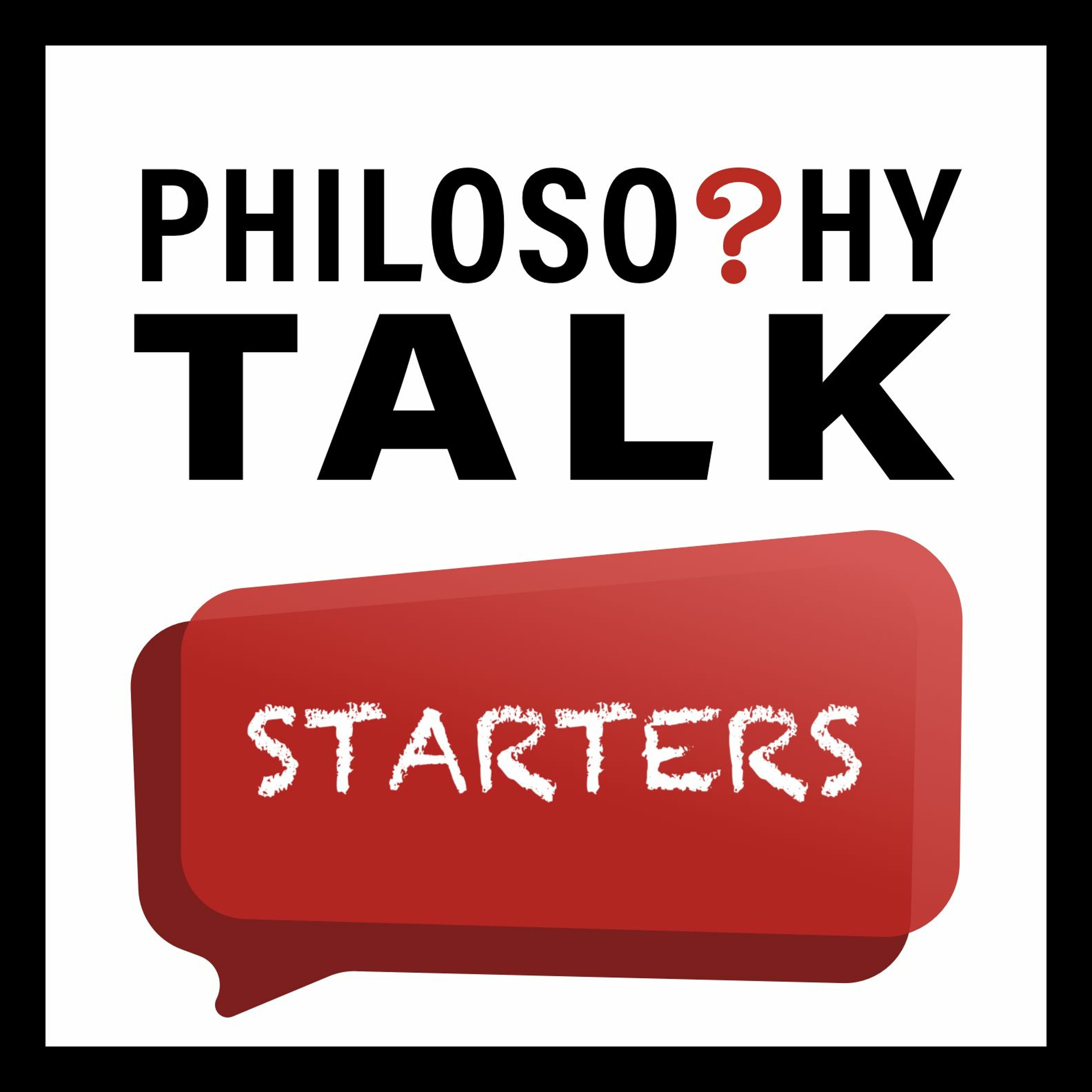 Philosophy Talk Starters588: Why Is the World So Weird?More at https://www.philosophytalk.org/shows/why-world-so-weird.
Quantum mechanics, mathematics, human consciousness.... whichever way you slice it, the universe is weird. How can our conscious minds be made from unconscious atoms? What should we make of quantum entanglement, or the fact that light can be both a particle and a wave? Why is it that there are exactly as many fractions as there are whole numbers? Josh and Ray boggle at the strangeness of it all with Eric Schwitzgebel from UC Riverside, author of "The Weirdness of the World."2024-04-2309 min
Philosophy Talk Starters588: Why Is the World So Weird?More at https://www.philosophytalk.org/shows/why-world-so-weird.
Quantum mechanics, mathematics, human consciousness.... whichever way you slice it, the universe is weird. How can our conscious minds be made from unconscious atoms? What should we make of quantum entanglement, or the fact that light can be both a particle and a wave? Why is it that there are exactly as many fractions as there are whole numbers? Josh and Ray boggle at the strangeness of it all with Eric Schwitzgebel from UC Riverside, author of "The Weirdness of the World."2024-04-2309 min New Books in Big IdeasEric Schwitzgebel, "The Weirdness of the World" (Princeton UP, 2024)"What's life for if there's no time to play and explore?" In The Weirdness of the World (Princeton UP, 2024), Eric Schwitzgebel invites the reader to a walk on the wilder side of philosophical speculation about the cosmos and consciousness. Is consciousness entirely a material phenomenon? How much credence should we have in the existence of a world outside our minds? Are there multiple parallel universes? Schwitzgebel, a professor of philosophy at the University of California-Riverside, constructs chains of conditional probabilities to explore the zone just beyond the edge of what we can understand, however imperfectly, given current scientific theory. He...2024-04-101h 02
New Books in Big IdeasEric Schwitzgebel, "The Weirdness of the World" (Princeton UP, 2024)"What's life for if there's no time to play and explore?" In The Weirdness of the World (Princeton UP, 2024), Eric Schwitzgebel invites the reader to a walk on the wilder side of philosophical speculation about the cosmos and consciousness. Is consciousness entirely a material phenomenon? How much credence should we have in the existence of a world outside our minds? Are there multiple parallel universes? Schwitzgebel, a professor of philosophy at the University of California-Riverside, constructs chains of conditional probabilities to explore the zone just beyond the edge of what we can understand, however imperfectly, given current scientific theory. He...2024-04-101h 02 NBN Book of the DayEric Schwitzgebel, "The Weirdness of the World" (Princeton UP, 2024)"What's life for if there's no time to play and explore?" In The Weirdness of the World (Princeton UP, 2024), Eric Schwitzgebel invites the reader to a walk on the wilder side of philosophical speculation about the cosmos and consciousness. Is consciousness entirely a material phenomenon? How much credence should we have in the existence of a world outside our minds? Are there multiple parallel universes? Schwitzgebel, a professor of philosophy at the University of California-Riverside, constructs chains of conditional probabilities to explore the zone just beyond the edge of what we can understand, however imperfectly, given current scientific theory. He...2024-04-101h 02
NBN Book of the DayEric Schwitzgebel, "The Weirdness of the World" (Princeton UP, 2024)"What's life for if there's no time to play and explore?" In The Weirdness of the World (Princeton UP, 2024), Eric Schwitzgebel invites the reader to a walk on the wilder side of philosophical speculation about the cosmos and consciousness. Is consciousness entirely a material phenomenon? How much credence should we have in the existence of a world outside our minds? Are there multiple parallel universes? Schwitzgebel, a professor of philosophy at the University of California-Riverside, constructs chains of conditional probabilities to explore the zone just beyond the edge of what we can understand, however imperfectly, given current scientific theory. He...2024-04-101h 02 Princeton UP Ideas PodcastEric Schwitzgebel, "The Weirdness of the World" (Princeton UP, 2024)"What's life for if there's no time to play and explore?" In The Weirdness of the World (Princeton UP, 2024), Eric Schwitzgebel invites the reader to a walk on the wilder side of philosophical speculation about the cosmos and consciousness. Is consciousness entirely a material phenomenon? How much credence should we have in the existence of a world outside our minds? Are there multiple parallel universes? Schwitzgebel, a professor of philosophy at the University of California-Riverside, constructs chains of conditional probabilities to explore the zone just beyond the edge of what we can understand, however imperfectly, given current scientific theory. He...2024-04-1058 min
Princeton UP Ideas PodcastEric Schwitzgebel, "The Weirdness of the World" (Princeton UP, 2024)"What's life for if there's no time to play and explore?" In The Weirdness of the World (Princeton UP, 2024), Eric Schwitzgebel invites the reader to a walk on the wilder side of philosophical speculation about the cosmos and consciousness. Is consciousness entirely a material phenomenon? How much credence should we have in the existence of a world outside our minds? Are there multiple parallel universes? Schwitzgebel, a professor of philosophy at the University of California-Riverside, constructs chains of conditional probabilities to explore the zone just beyond the edge of what we can understand, however imperfectly, given current scientific theory. He...2024-04-1058 min New Books in PhilosophyEric Schwitzgebel, "The Weirdness of the World" (Princeton UP, 2024)"What's life for if there's no time to play and explore?" In The Weirdness of the World (Princeton UP, 2024), Eric Schwitzgebel invites the reader to a walk on the wilder side of philosophical speculation about the cosmos and consciousness. Is consciousness entirely a material phenomenon? How much credence should we have in the existence of a world outside our minds? Are there multiple parallel universes? Schwitzgebel, a professor of philosophy at the University of California-Riverside, constructs chains of conditional probabilities to explore the zone just beyond the edge of what we can understand, however imperfectly, given current scientific theory. He...2024-04-101h 02
New Books in PhilosophyEric Schwitzgebel, "The Weirdness of the World" (Princeton UP, 2024)"What's life for if there's no time to play and explore?" In The Weirdness of the World (Princeton UP, 2024), Eric Schwitzgebel invites the reader to a walk on the wilder side of philosophical speculation about the cosmos and consciousness. Is consciousness entirely a material phenomenon? How much credence should we have in the existence of a world outside our minds? Are there multiple parallel universes? Schwitzgebel, a professor of philosophy at the University of California-Riverside, constructs chains of conditional probabilities to explore the zone just beyond the edge of what we can understand, however imperfectly, given current scientific theory. He...2024-04-101h 02 Podside PicnicEpisode 261: The Dauphine's MetaphysicsToday we discuss Eric Schwitzgebel's The Dauphin's Metaphysics, first printed in Unlikely Story's The Journal of Unlikely Academia, a story about a limited and quite disturbing form of immortality
Read the story:http://www.unlikely-story.com/stories/the-dauphins-metaphysics-by-eric-schwitzgebel/
Art by Diane Dellicarpini2024-03-2659 min
Podside PicnicEpisode 261: The Dauphine's MetaphysicsToday we discuss Eric Schwitzgebel's The Dauphin's Metaphysics, first printed in Unlikely Story's The Journal of Unlikely Academia, a story about a limited and quite disturbing form of immortality
Read the story:http://www.unlikely-story.com/stories/the-dauphins-metaphysics-by-eric-schwitzgebel/
Art by Diane Dellicarpini2024-03-2659 min The Michael Shermer ShowThe Weirdness of the WorldDo we live inside a simulated reality or a pocket universe embedded in a larger structure about which we know virtually nothing? Is consciousness a purely physical matter, or might it require something extra, something nonphysical? According to the philosopher Eric Schwitzgebel, it’s hard to say. In The Weirdness of the World, Schwitzgebel argues that the answers to these fundamental questions lie beyond our powers of comprehension. We can be certain only that the truth—whatever it is—is weird. Philosophy, he proposes, can aim to open—to reveal possibilities we had not previously appreciated—or to close, to narrow...2024-03-162h 03
The Michael Shermer ShowThe Weirdness of the WorldDo we live inside a simulated reality or a pocket universe embedded in a larger structure about which we know virtually nothing? Is consciousness a purely physical matter, or might it require something extra, something nonphysical? According to the philosopher Eric Schwitzgebel, it’s hard to say. In The Weirdness of the World, Schwitzgebel argues that the answers to these fundamental questions lie beyond our powers of comprehension. We can be certain only that the truth—whatever it is—is weird. Philosophy, he proposes, can aim to open—to reveal possibilities we had not previously appreciated—or to close, to narrow...2024-03-162h 03 The Neha Anwar PodcastEpisode 64: Eric Schwitzgebel is Professor of Philosophy at the University of CaliforniaEric Schwitzgebel, an esteemed philosopher at the University of California, Riverside, is renowned for his groundbreaking work at the intersection of empirical psychology and philosophy of mind. With a PhD from the University of California, Berkeley, under the mentorship of Elisabeth A. Lloyd, Alison Gopnik, and John Searle, Schwitzgebel has become a leading voice in contemporary philosophical discourse.
His research focuses on the behavior of philosophers, particularly ethicists, using empirical methods to explore whether ethicists exhibit heightened ethical conduct. Through seminal studies, including a notable 2009 investigation into the prevalence of ethics books in academic...2024-03-071h 02
The Neha Anwar PodcastEpisode 64: Eric Schwitzgebel is Professor of Philosophy at the University of CaliforniaEric Schwitzgebel, an esteemed philosopher at the University of California, Riverside, is renowned for his groundbreaking work at the intersection of empirical psychology and philosophy of mind. With a PhD from the University of California, Berkeley, under the mentorship of Elisabeth A. Lloyd, Alison Gopnik, and John Searle, Schwitzgebel has become a leading voice in contemporary philosophical discourse.
His research focuses on the behavior of philosophers, particularly ethicists, using empirical methods to explore whether ethicists exhibit heightened ethical conduct. Through seminal studies, including a notable 2009 investigation into the prevalence of ethics books in academic...2024-03-071h 02 The Sentience Institute PodcastEric Schwitzgebel on user perception of the moral status of AI“I call this the emotional alignment design policy. So the idea is that corporations, if they create sentient machines, should create them so that it's obvious to users that they're sentient. And so they evoke appropriate emotional reactions to sentient users. So you don't create a sentient machine and then put it in a bland box that no one will have emotional reactions to. And conversely, don't create a non sentient machine that people will attach to so much and think it's sentient that they'd be willing to make excessive sacrifices for this thing that isn't really sentient.”Eric...2024-02-1557 min
The Sentience Institute PodcastEric Schwitzgebel on user perception of the moral status of AI“I call this the emotional alignment design policy. So the idea is that corporations, if they create sentient machines, should create them so that it's obvious to users that they're sentient. And so they evoke appropriate emotional reactions to sentient users. So you don't create a sentient machine and then put it in a bland box that no one will have emotional reactions to. And conversely, don't create a non sentient machine that people will attach to so much and think it's sentient that they'd be willing to make excessive sacrifices for this thing that isn't really sentient.”Eric...2024-02-1557 min Hear This IdeaEric Schwitzgebel on Digital Consciousness and the Weirdness of the WorldEric Schwitzgebel is a professor of philosophy at the University of California, Riverside. His main interests include connections between empirical psychology and philosophy of mind and the nature of belief. His book The Weirdness of the World can be found here.
We talk about:
The possibility of digital consciousness
Policy ideas for avoiding major moral mistakes around digital consciousness
Prospects for the science of consciousness, and why we likely won't have clear answers in time
Why introspection is much less reliable than most people think
How and why we invent false stories about our own choices...2024-02-041h 58
Hear This IdeaEric Schwitzgebel on Digital Consciousness and the Weirdness of the WorldEric Schwitzgebel is a professor of philosophy at the University of California, Riverside. His main interests include connections between empirical psychology and philosophy of mind and the nature of belief. His book The Weirdness of the World can be found here.
We talk about:
The possibility of digital consciousness
Policy ideas for avoiding major moral mistakes around digital consciousness
Prospects for the science of consciousness, and why we likely won't have clear answers in time
Why introspection is much less reliable than most people think
How and why we invent false stories about our own choices...2024-02-041h 58 Consciousness Live!Eric Schwitzgebel Live!
My struggle with technical issues continues! But after we work that out Eric and I have a really fun discussion about his new book The Weirdness of the World.
2024-01-301h 47
Consciousness Live!Eric Schwitzgebel Live!
My struggle with technical issues continues! But after we work that out Eric and I have a really fun discussion about his new book The Weirdness of the World.
2024-01-301h 47 Dark Side of the LibraryDark Non-Fiction Books Coming Out January 2024Dark Side of the Library Podcast Episode #169: Dark Non-Fiction Books Coming Out January 2024 (Disclosure: Some of the links in this post are affiliate links. This means if you click on the link and purchase the item, we will receive an affiliate commission at no extra cost to you) The Broke Witch: Magick Spells and Powerful Potions that Use What You Can Grow, Find, or Already Have, by Deborah Castellano (Jan 23) https://amzn.to/3FH4yWb The Cancer Factory: Industrial Chemicals, Corporate Deception, and the Hidden Deaths of American Workers2024-01-2422 min
Dark Side of the LibraryDark Non-Fiction Books Coming Out January 2024Dark Side of the Library Podcast Episode #169: Dark Non-Fiction Books Coming Out January 2024 (Disclosure: Some of the links in this post are affiliate links. This means if you click on the link and purchase the item, we will receive an affiliate commission at no extra cost to you) The Broke Witch: Magick Spells and Powerful Potions that Use What You Can Grow, Find, or Already Have, by Deborah Castellano (Jan 23) https://amzn.to/3FH4yWb The Cancer Factory: Industrial Chemicals, Corporate Deception, and the Hidden Deaths of American Workers2024-01-2422 min Your Favorite Stories, Now in Your Ears - Full AudiobookWeirdness of the World Audiobook by Eric SchwitzgebelListen to this audiobook in full for free onhttps://hotaudiobook.com/freeID: 723448
Title: Weirdness of the World
Author: Eric Schwitzgebel
Narrator: Will Collyer
Format: Unabridged
Length: 10:24:53
Language: English
Release date: 01-16-24
Publisher: Princeton University Press
Genres: Non-Fiction, Philosophy
Summary:
This audiobook narrated by Will Collyer reveals why all philosophical explanations of human consciousness and the structure of the cosmos are bizarre—and why that’s a good thing
Do we live inside a simulated reality or a pocket universe embedded in a larger structure about which we know virtually nothing? Is consciousness a purely physical matter, or might it requ...2024-01-1610h 24
Your Favorite Stories, Now in Your Ears - Full AudiobookWeirdness of the World Audiobook by Eric SchwitzgebelListen to this audiobook in full for free onhttps://hotaudiobook.com/freeID: 723448
Title: Weirdness of the World
Author: Eric Schwitzgebel
Narrator: Will Collyer
Format: Unabridged
Length: 10:24:53
Language: English
Release date: 01-16-24
Publisher: Princeton University Press
Genres: Non-Fiction, Philosophy
Summary:
This audiobook narrated by Will Collyer reveals why all philosophical explanations of human consciousness and the structure of the cosmos are bizarre—and why that’s a good thing
Do we live inside a simulated reality or a pocket universe embedded in a larger structure about which we know virtually nothing? Is consciousness a purely physical matter, or might it requ...2024-01-1610h 24 Experience Your Day With A Heart-Pounding Full Audiobook.The Weirdness of the World by Eric SchwitzgebelPlease visithttps://thebookvoice.com/podcasts/1/audiobook/723448to listen full audiobooks.
Title: The Weirdness of the World
Author: Eric Schwitzgebel
Narrator: Will Collyer
Format: Unabridged Audiobook
Length: 10 hours 24 minutes
Release date: January 16, 2024
Genres: Lessons in Philosophy
Publisher's Summary:
This audiobook narrated by Will Collyer reveals why all philosophical explanations of human consciousness and the structure of the cosmos are bizarre—and why that's a good thing Do we live inside a simulated reality or a pocket universe embedded in a larger structure about which we know virtually nothing? Is consciousness a purely physical matter, or might it require something extra, something no...2024-01-1610h 24
Experience Your Day With A Heart-Pounding Full Audiobook.The Weirdness of the World by Eric SchwitzgebelPlease visithttps://thebookvoice.com/podcasts/1/audiobook/723448to listen full audiobooks.
Title: The Weirdness of the World
Author: Eric Schwitzgebel
Narrator: Will Collyer
Format: Unabridged Audiobook
Length: 10 hours 24 minutes
Release date: January 16, 2024
Genres: Lessons in Philosophy
Publisher's Summary:
This audiobook narrated by Will Collyer reveals why all philosophical explanations of human consciousness and the structure of the cosmos are bizarre—and why that's a good thing Do we live inside a simulated reality or a pocket universe embedded in a larger structure about which we know virtually nothing? Is consciousness a purely physical matter, or might it require something extra, something no...2024-01-1610h 24 Sean Carroll's Mindscape: Science, Society, Philosophy, Culture, Arts, and IdeasEric Schwitzgebel on the Weirdness of the WorldScientists and philosophers sometimes advocate pretty outrageous-sounding ideas about the fundamental nature of reality. (Arguably I have been guilty of this.) It shouldn't be surprising that reality, in regimes far away from our everyday experience, fails to conform to common sense. But it's also okay to maintain a bit of skepticism in the face of bizarre claims. Philosopher Eric Schwitzgebel wants us to face up to the weirdness of the world. He claims that there are no non-weird ways to explain some of the most important features of reality, from quantum mechanics to consciousness.Blog post with...2024-01-151h 20
Sean Carroll's Mindscape: Science, Society, Philosophy, Culture, Arts, and IdeasEric Schwitzgebel on the Weirdness of the WorldScientists and philosophers sometimes advocate pretty outrageous-sounding ideas about the fundamental nature of reality. (Arguably I have been guilty of this.) It shouldn't be surprising that reality, in regimes far away from our everyday experience, fails to conform to common sense. But it's also okay to maintain a bit of skepticism in the face of bizarre claims. Philosopher Eric Schwitzgebel wants us to face up to the weirdness of the world. He claims that there are no non-weird ways to explain some of the most important features of reality, from quantum mechanics to consciousness.Blog post with...2024-01-151h 20 Consciousness Live!Consciousness Live! Season 6(?!?!)
2024 is here and I am slowly coming out of my book-writing-induced coma to return to normal daylight activities. I have submitted the manuscript and we’ll see what reviewers think. In the meantime, I am slowly getting a line up for some Consciousness Live! discussions in the New Year.
I started off the New Year with a great discussion with Felipe de Brigard (below) and have a few more in the works. Should be fun!
January 3rd –Felipe De Brigard
January 11th –Rachel Denison
January 22nd –Michael Graziano
January 29th –Eric Schwitzgebel
February 5th –Steve Fleming
March 18th –...2024-01-031h 20
Consciousness Live!Consciousness Live! Season 6(?!?!)
2024 is here and I am slowly coming out of my book-writing-induced coma to return to normal daylight activities. I have submitted the manuscript and we’ll see what reviewers think. In the meantime, I am slowly getting a line up for some Consciousness Live! discussions in the New Year.
I started off the New Year with a great discussion with Felipe de Brigard (below) and have a few more in the works. Should be fun!
January 3rd –Felipe De Brigard
January 11th –Rachel Denison
January 22nd –Michael Graziano
January 29th –Eric Schwitzgebel
February 5th –Steve Fleming
March 18th –...2024-01-031h 20 Teaching in Higher EdTeaching Through Experiences, with Stephen Bloch-SchulmanStephen Bloch-Schulman talks about teaching through experiences on episode 491 of the Teaching in Higher Ed podcast.
Quotes from the episode
When students tell me what they think their beliefs are, what I’m hearing is what they wish they believe, not what they believe.
-Stephen Bloch-Schulman
I think what we’re doing when we’re talking about beliefs is often just naming how we wish we were.
-Stephen Bloch-Schulman
Resources
Verified: How to Think Straight, Get Duped Less, and Make Better Decisions about What t...2023-11-0940 min
Teaching in Higher EdTeaching Through Experiences, with Stephen Bloch-SchulmanStephen Bloch-Schulman talks about teaching through experiences on episode 491 of the Teaching in Higher Ed podcast.
Quotes from the episode
When students tell me what they think their beliefs are, what I’m hearing is what they wish they believe, not what they believe.
-Stephen Bloch-Schulman
I think what we’re doing when we’re talking about beliefs is often just naming how we wish we were.
-Stephen Bloch-Schulman
Resources
Verified: How to Think Straight, Get Duped Less, and Make Better Decisions about What t...2023-11-0940 min Mind ChatEric Schwitzgebel : Is the United States Conscious?Eric Schwitzgebel is professor of Philosophy at the University of California, Riverside. His research interests include philosophy of psychology, philosophy of mind, moral psychology, classical Chinese philosophy, epistemology, metaphilosophy, and metaphysics. He has also written a number of pieces of philosophical science fiction, which have been published in leading science fiction magazines.
2023-07-251h 54
Mind ChatEric Schwitzgebel : Is the United States Conscious?Eric Schwitzgebel is professor of Philosophy at the University of California, Riverside. His research interests include philosophy of psychology, philosophy of mind, moral psychology, classical Chinese philosophy, epistemology, metaphilosophy, and metaphysics. He has also written a number of pieces of philosophical science fiction, which have been published in leading science fiction magazines.
2023-07-251h 54 The Uncommon Wisdom Podcast#28 | Eric Schwitzgebel | Don't Be a JerkIn this episode, Eric Schwitzgebel and I discuss topics like his theory of jerks, moral mediocrity, death bed regrets, the extent of our conscious experience, and much more besides. Eric Schwitzgebel is Professor of Philosophy at University of California, Riverside. He works on topics in the philosophy of psychology, philosophy of mind, and moral psychology. He has many publications to his credit. This is a public episode. If you would like to discuss this with other subscribers or get access to bonus episodes, visit jimmyalfonsolicon.substack.com2023-07-0750 min
The Uncommon Wisdom Podcast#28 | Eric Schwitzgebel | Don't Be a JerkIn this episode, Eric Schwitzgebel and I discuss topics like his theory of jerks, moral mediocrity, death bed regrets, the extent of our conscious experience, and much more besides. Eric Schwitzgebel is Professor of Philosophy at University of California, Riverside. He works on topics in the philosophy of psychology, philosophy of mind, and moral psychology. He has many publications to his credit. This is a public episode. If you would like to discuss this with other subscribers or get access to bonus episodes, visit jimmyalfonsolicon.substack.com2023-07-0750 min Free Food For ThoughtFalling in Love with Machines with Eric SchwitzgebelVedanth Reddy and Natalie Chen sit down with Eric Schwitzgebel, professor of philosophy at UC Riverside, to talk about consciousness and the ethics of artificial intelligence. Eric Schwitzgebel is professor of philosophy at University of California, Riverside, and author of four books and over a hundred research articles spanning widely across philosophy and psychology. He is especially drawn to interdisciplinary topics where standard research methodologies fall apart.2023-04-1536 min
Free Food For ThoughtFalling in Love with Machines with Eric SchwitzgebelVedanth Reddy and Natalie Chen sit down with Eric Schwitzgebel, professor of philosophy at UC Riverside, to talk about consciousness and the ethics of artificial intelligence. Eric Schwitzgebel is professor of philosophy at University of California, Riverside, and author of four books and over a hundred research articles spanning widely across philosophy and psychology. He is especially drawn to interdisciplinary topics where standard research methodologies fall apart.2023-04-1536 min The Dissenter#769 Eric Schwitzgebel: Beliefs, Introspection, Ethics Professors, and Women in Philosophy------------------Support the channel------------
Patreon: https://www.patreon.com/thedissenter
PayPal: paypal.me/thedissenter
PayPal Subscription 1 Dollar: https://tinyurl.com/yb3acuuy
PayPal Subscription 3 Dollars: https://tinyurl.com/ybn6bg9l
PayPal Subscription 5 Dollars: https://tinyurl.com/ycmr9gpz
PayPal Subscription 10 Dollars: https://tinyurl.com/y9r3fc9m
PayPal Subscription 20 Dollars: https://tinyurl.com/y95uvkao
This show is sponsored by Enlites, Learning & Development done differently. Check the website here: http://enlites.com/
Dr. Eric...2023-04-141h 07
The Dissenter#769 Eric Schwitzgebel: Beliefs, Introspection, Ethics Professors, and Women in Philosophy------------------Support the channel------------
Patreon: https://www.patreon.com/thedissenter
PayPal: paypal.me/thedissenter
PayPal Subscription 1 Dollar: https://tinyurl.com/yb3acuuy
PayPal Subscription 3 Dollars: https://tinyurl.com/ybn6bg9l
PayPal Subscription 5 Dollars: https://tinyurl.com/ycmr9gpz
PayPal Subscription 10 Dollars: https://tinyurl.com/y9r3fc9m
PayPal Subscription 20 Dollars: https://tinyurl.com/y95uvkao
This show is sponsored by Enlites, Learning & Development done differently. Check the website here: http://enlites.com/
Dr. Eric...2023-04-141h 07 Clarkesworld MagazineLarva Pupa Imago by Eric Schwitzgebel (audio)This episode features "Larva Pupa Imago" written by Eric Schwitzgebel. Published in the February 2023 issue of Clarkesworld Magazine and read by Kate Baker.
The text version of this story can be found at:
https://clarkesworldmagazine.com/schwitzgebel_02_23
Support us on Patreon at https://www.patreon.com/join/clarkesworld?2023-03-0644 min
Clarkesworld MagazineLarva Pupa Imago by Eric Schwitzgebel (audio)This episode features "Larva Pupa Imago" written by Eric Schwitzgebel. Published in the February 2023 issue of Clarkesworld Magazine and read by Kate Baker.
The text version of this story can be found at:
https://clarkesworldmagazine.com/schwitzgebel_02_23
Support us on Patreon at https://www.patreon.com/join/clarkesworld?2023-03-0644 min Robinson's Podcast43 - Eric Schwitzgebel: The Philosophical Weirdness of the WorldEric Schwitzgebel is a Professor of Philosophy at the University of California Riverside. Before that, he did his undergraduate work at Stanford, and then received his doctorate from the University of California Berkeley. Eric has worked on an extremely wide array of topics, ranging from Chinese philosophy to philosophy of mind, metaphilosophy, and metaphysics. In this conversation, however, Robinson and Eric talk about his upcoming book on philosophy and weirdness. In particular, they discuss why the United States might be conscious, what Kant and cyberpunk have in common, the moral value of alien microbes, and a lot more about...2023-01-161h 30
Robinson's Podcast43 - Eric Schwitzgebel: The Philosophical Weirdness of the WorldEric Schwitzgebel is a Professor of Philosophy at the University of California Riverside. Before that, he did his undergraduate work at Stanford, and then received his doctorate from the University of California Berkeley. Eric has worked on an extremely wide array of topics, ranging from Chinese philosophy to philosophy of mind, metaphilosophy, and metaphysics. In this conversation, however, Robinson and Eric talk about his upcoming book on philosophy and weirdness. In particular, they discuss why the United States might be conscious, what Kant and cyberpunk have in common, the moral value of alien microbes, and a lot more about...2023-01-161h 30 Chasing ConsciousnessPhilip Goff PHD - THE RISE OF PANPSYCHISMWhy is Panpsychism gaining popularity? Is it coherent to say consciousness emerged out of non-consciousness? What can we deduce from a universe fine tuned for life?
In this episode we have the important job of finding out what Panpsychism is all about, and why the philosophical position is gaining more and more traction in philosophy, but even with physicists and other scientists. The idea that consciousness is the fundamental nature of the physical world is by no means a new one, and it does seem to resolve some of the problems of how consciously experiencing lifeforms could...2022-08-011h 22
Chasing ConsciousnessPhilip Goff PHD - THE RISE OF PANPSYCHISMWhy is Panpsychism gaining popularity? Is it coherent to say consciousness emerged out of non-consciousness? What can we deduce from a universe fine tuned for life?
In this episode we have the important job of finding out what Panpsychism is all about, and why the philosophical position is gaining more and more traction in philosophy, but even with physicists and other scientists. The idea that consciousness is the fundamental nature of the physical world is by no means a new one, and it does seem to resolve some of the problems of how consciously experiencing lifeforms could...2022-08-011h 22 Walden Pod55 - Mysterianism: Rational Pessimism in the Metaphysics of ConsciousnessMy opinionated introduction to mysterianism. Inspired by Noam Chomsky, Colin McGinn, and Eric Schwitzgebel, we explore a version of mysterianism that I think may be true.
YouTube
Support on Patreon
Listen to our sister show, Counter Apologetics here
Transcript
Shane Wagoner - From Physicalism to Mysterianism
Music by ichika Nito and used with permission.
Twitter @waldenpod @OnPanpsychism
linktr.ee/emersongreen
2022-06-1619 min
Walden Pod55 - Mysterianism: Rational Pessimism in the Metaphysics of ConsciousnessMy opinionated introduction to mysterianism. Inspired by Noam Chomsky, Colin McGinn, and Eric Schwitzgebel, we explore a version of mysterianism that I think may be true.
YouTube
Support on Patreon
Listen to our sister show, Counter Apologetics here
Transcript
Shane Wagoner - From Physicalism to Mysterianism
Music by ichika Nito and used with permission.
Twitter @waldenpod @OnPanpsychism
linktr.ee/emersongreen
2022-06-1619 min Clearer Thinking with Spencer GreenbergA philosophical theory of jerks (with Eric Schwitzgebel)Read the full transcript here. To what extent does thinking about ethics actually cause a person to behave more ethically? Do ethicists behave more ethically than the average person, or are they just better at justifying their unethical behavior? Why do we sometimes have strong negative reactions to people who seem "too" moral — even if they're genuinely altruistic and not just acting as though they're better than everyone else? Is morality inherently motivating? More specifically, are some kinds of moral beliefs more motivating than others (e.g., beliefs obtained through reasoning vs. beliefs adopted because of social pr...2022-06-021h 15
Clearer Thinking with Spencer GreenbergA philosophical theory of jerks (with Eric Schwitzgebel)Read the full transcript here. To what extent does thinking about ethics actually cause a person to behave more ethically? Do ethicists behave more ethically than the average person, or are they just better at justifying their unethical behavior? Why do we sometimes have strong negative reactions to people who seem "too" moral — even if they're genuinely altruistic and not just acting as though they're better than everyone else? Is morality inherently motivating? More specifically, are some kinds of moral beliefs more motivating than others (e.g., beliefs obtained through reasoning vs. beliefs adopted because of social pr...2022-06-021h 15 Owls at Dawn"Are You a Jerk or a Sweetheart?" - OaD Ep. 166"Are You a Jerk or a Sweetheart?" - OaD Ep. 166Shitty Minute: Being sour on Bernie Sanders | Main Segment: Eric Schwitzgebel's "The COVID Jerk" | Sticky Leaves: Everything Everywhere All At OnceFind Schwitzgebel's article here.Music by Blue Ducks - "Four Inches of Water"___________For OaD merch, visit our site here.To gain access to bonus episodes, the community Discord, and more, visit our Patreon account. All funds will go toward producing further content, increasing our ability to engage with you, and improving our technical production.2022-05-051h 23
Owls at Dawn"Are You a Jerk or a Sweetheart?" - OaD Ep. 166"Are You a Jerk or a Sweetheart?" - OaD Ep. 166Shitty Minute: Being sour on Bernie Sanders | Main Segment: Eric Schwitzgebel's "The COVID Jerk" | Sticky Leaves: Everything Everywhere All At OnceFind Schwitzgebel's article here.Music by Blue Ducks - "Four Inches of Water"___________For OaD merch, visit our site here.To gain access to bonus episodes, the community Discord, and more, visit our Patreon account. All funds will go toward producing further content, increasing our ability to engage with you, and improving our technical production.2022-05-051h 23 What Is X?What Is Consciousness? | Eric SchwitzgebelIn this episode of “What Is X?” Justin E.H. Smith comes ready to be persuaded, as he tries to get a handle on one of the most difficult Xes of all: consciousness. What are the inner states we experience? Is figuring it out just a matter of neural activity, or might there be something to consciousness that science can’t fully apprehend? What is the nature of introspection, the stream of thoughts and experiences we have in the privacy of our own intellects? What are the boundaries of consciousness? Is it different from sense perception? What does it mean t...2022-03-151h 09
What Is X?What Is Consciousness? | Eric SchwitzgebelIn this episode of “What Is X?” Justin E.H. Smith comes ready to be persuaded, as he tries to get a handle on one of the most difficult Xes of all: consciousness. What are the inner states we experience? Is figuring it out just a matter of neural activity, or might there be something to consciousness that science can’t fully apprehend? What is the nature of introspection, the stream of thoughts and experiences we have in the privacy of our own intellects? What are the boundaries of consciousness? Is it different from sense perception? What does it mean t...2022-03-151h 09 Mind-Body SolutionEric Schwitzgebel: A Weird World? Universal Bizarreness Thesis & Perplexities of ConsciousnessEric Schwitzgebel is Professor of Philosophy at University of California at Riverside. He received his B.A. in Philosophy from Stanford and his PhD in Philosophy from U.C. Berkeley. He blogs at The Splintered Mind and is the author of Perplexities of Consciousness (2011) and A Theory of Jerks and Other Philosophical Misadventures (2019). He has published dozens of articles on the issue of introspection, moral psychology, the nature of belief and other attitudes; the epistemology of philosophy; ancient Chinese philosophy; philosophical issues in moral, developmental, and perceptual psychology; the metaphysics of consciousness; and the relationship between philosophy and science fiction.
...2022-03-092h 01
Mind-Body SolutionEric Schwitzgebel: A Weird World? Universal Bizarreness Thesis & Perplexities of ConsciousnessEric Schwitzgebel is Professor of Philosophy at University of California at Riverside. He received his B.A. in Philosophy from Stanford and his PhD in Philosophy from U.C. Berkeley. He blogs at The Splintered Mind and is the author of Perplexities of Consciousness (2011) and A Theory of Jerks and Other Philosophical Misadventures (2019). He has published dozens of articles on the issue of introspection, moral psychology, the nature of belief and other attitudes; the epistemology of philosophy; ancient Chinese philosophy; philosophical issues in moral, developmental, and perceptual psychology; the metaphysics of consciousness; and the relationship between philosophy and science fiction.
...2022-03-092h 01 The Convivial Society"Dream of Virtual Reality" Audio Version AND Some Links For Your ConsiderationAs promised, here is the audio version of the last installment, “The Dream of Virtual Reality.” To those of you who find the audio version helpful, thank you for your patience! And while I’m at it, let me pass along a few links, a couple of which are directly related to this installment. LinksJust after I initially posted “The Dream of Virtual Reality,” Evan Selinger reached out with a link to his interview of David Chalmers about Reality+. I confess to thinking that I might have been a bit uncharitable in taking Cha...2022-01-2820 min
The Convivial Society"Dream of Virtual Reality" Audio Version AND Some Links For Your ConsiderationAs promised, here is the audio version of the last installment, “The Dream of Virtual Reality.” To those of you who find the audio version helpful, thank you for your patience! And while I’m at it, let me pass along a few links, a couple of which are directly related to this installment. LinksJust after I initially posted “The Dream of Virtual Reality,” Evan Selinger reached out with a link to his interview of David Chalmers about Reality+. I confess to thinking that I might have been a bit uncharitable in taking Cha...2022-01-2820 min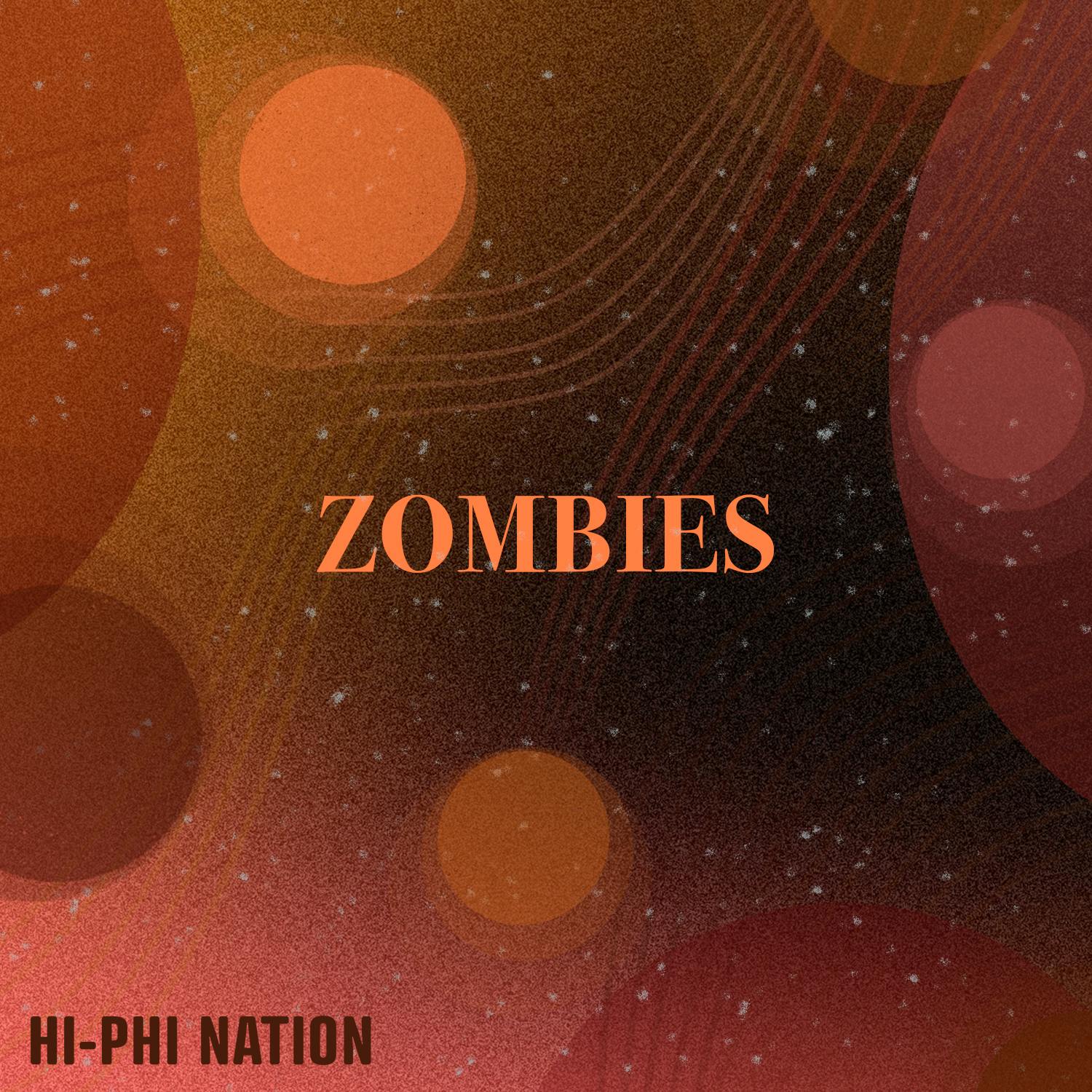 Hi-Phi NationZombiesThe second in a three-part series on monsters in philosophy. We trace the cultural history of zombies from voodoo folklore, George Romero films, and the zombies used in philosophical thought experiments. Folklore, film and philosophy seem to converge on the idea that consciousness above all else is what a creature needs to have to be worthy of moral concern, something a zombie lacks. But we have no idea when something crosses over from being a zombie to being conscious, particularly current AI systems. What happens then? Guest speakers are Christina van Dyke (Columbia), David Chalmers (NYU), and John Edgar...2022-01-2237 min
Hi-Phi NationZombiesThe second in a three-part series on monsters in philosophy. We trace the cultural history of zombies from voodoo folklore, George Romero films, and the zombies used in philosophical thought experiments. Folklore, film and philosophy seem to converge on the idea that consciousness above all else is what a creature needs to have to be worthy of moral concern, something a zombie lacks. But we have no idea when something crosses over from being a zombie to being conscious, particularly current AI systems. What happens then? Guest speakers are Christina van Dyke (Columbia), David Chalmers (NYU), and John Edgar...2022-01-2237 min Hi-Phi Nation PlusZombiesThe second in a three-part series on monsters in philosophy. We trace the cultural history of zombies from voodoo folklore, George Romero films, and the zombies used in philosophical thought experiments about the nature of human consciousness. Folklore, film and philosophy seem to converge on the idea that consciousness above all else is what a creature needs to have to be worthy of moral concern. But we have no idea when something crosses over from being a zombie to being conscious, particularly current AI systems. What happens then? Guest speakers are Christina van Dyke (Columbia), David Chalmers (NYU), and...2022-01-2232 min
Hi-Phi Nation PlusZombiesThe second in a three-part series on monsters in philosophy. We trace the cultural history of zombies from voodoo folklore, George Romero films, and the zombies used in philosophical thought experiments about the nature of human consciousness. Folklore, film and philosophy seem to converge on the idea that consciousness above all else is what a creature needs to have to be worthy of moral concern. But we have no idea when something crosses over from being a zombie to being conscious, particularly current AI systems. What happens then? Guest speakers are Christina van Dyke (Columbia), David Chalmers (NYU), and...2022-01-2232 min OverthinkScience Fiction (feat. Helen de Cruz)Would you willingly plug yourself into an experience-simulating machine such as The Matrix? What would happen to society if robots suddenly became conscious? What would you do if, for some reason, you encountered an utterly alien life form? Many of us first ponder big philosophical questions such as these through exposure to science fiction stories in books or movies. In episode 42, Ellie and David explore the power of sci-fi. After considering the origins of this genre, they interview Dr. Helen De Cruz, an expert on the philosophy of science fiction, about how our brains process sci-fi stories differently than ot...2022-01-0455 min
OverthinkScience Fiction (feat. Helen de Cruz)Would you willingly plug yourself into an experience-simulating machine such as The Matrix? What would happen to society if robots suddenly became conscious? What would you do if, for some reason, you encountered an utterly alien life form? Many of us first ponder big philosophical questions such as these through exposure to science fiction stories in books or movies. In episode 42, Ellie and David explore the power of sci-fi. After considering the origins of this genre, they interview Dr. Helen De Cruz, an expert on the philosophy of science fiction, about how our brains process sci-fi stories differently than ot...2022-01-0455 min Data & Science with Glen Wright ColopyEric Schwitzgebel | Consciousness, Zombies, & First Person Data | Philosophy of Data ScienceThe philosophical community continuously aims to reconcile differing views on first person data and the consciousness of the mind. Is it possible to live without consciousness? Can one conceive thoughts without matching images to them? In this episode, Eric Schwitzgebel of the University of California tries to dissect such topics and questions to help us better understand the philosophical world.
Keywords: philosophy, epistemic data, first person data, stimulus error, imageless thought, consciousness
2021-12-021h 13
Data & Science with Glen Wright ColopyEric Schwitzgebel | Consciousness, Zombies, & First Person Data | Philosophy of Data ScienceThe philosophical community continuously aims to reconcile differing views on first person data and the consciousness of the mind. Is it possible to live without consciousness? Can one conceive thoughts without matching images to them? In this episode, Eric Schwitzgebel of the University of California tries to dissect such topics and questions to help us better understand the philosophical world.
Keywords: philosophy, epistemic data, first person data, stimulus error, imageless thought, consciousness
2021-12-021h 13 The Nature & Nurture PodcastNature & Nurture #26: Dr. Eric Schwitzgebel - Belief, Consciousness, & CrazyismDr. Eric Schwitzgebel is a Professor of Philosophy at the University of California, Riverside. In this episode we discuss his thoughts on "in-between" beliefs, moral philosophy, and why most theories of consciousness are crazy.2021-10-201h 09
The Nature & Nurture PodcastNature & Nurture #26: Dr. Eric Schwitzgebel - Belief, Consciousness, & CrazyismDr. Eric Schwitzgebel is a Professor of Philosophy at the University of California, Riverside. In this episode we discuss his thoughts on "in-between" beliefs, moral philosophy, and why most theories of consciousness are crazy.2021-10-201h 09 Let's Chat EthicsIntention, intention, intention: Are we all utilitarians when it comes to judging machines?This week Alba and Amanda discuss a new book called How Humans Judge Machine by Cesar A. Hidalgo.
Get the book on: https://www.judgingmachines.com/
Eric Schwitzgebel's Aiming for Moral Mediocrity: https://faculty.ucr.edu/~eschwitz/SchwitzAbs/MoralMediocrity.htm
The puppy cartoon: https://images.app.goo.gl/C4zKG5hsfE6419Ra62021-09-021h 07
Let's Chat EthicsIntention, intention, intention: Are we all utilitarians when it comes to judging machines?This week Alba and Amanda discuss a new book called How Humans Judge Machine by Cesar A. Hidalgo.
Get the book on: https://www.judgingmachines.com/
Eric Schwitzgebel's Aiming for Moral Mediocrity: https://faculty.ucr.edu/~eschwitz/SchwitzAbs/MoralMediocrity.htm
The puppy cartoon: https://images.app.goo.gl/C4zKG5hsfE6419Ra62021-09-021h 07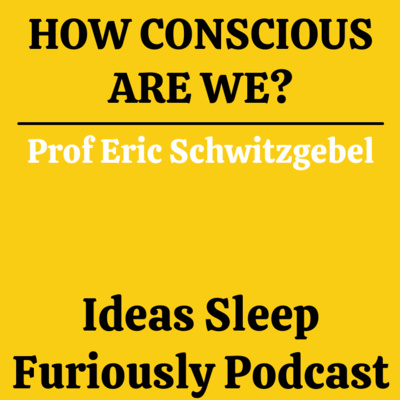 Aporia PodcastSkepticism & Consciousness | Eric Schwitzgebel - Ideas Sleep Furiously Podcast E05Eric Schwitzgebel is an American philosopher and professor of Philosophy at the University of California, Riverside. His main interests include connections between empirical psychology and philosophy of mind and the nature of belief. Support the show with a dollar/pound per video and get your name in the credits and my heart: https://www.patreon.com/Ideas_Sleep2021-07-111h 20
Aporia PodcastSkepticism & Consciousness | Eric Schwitzgebel - Ideas Sleep Furiously Podcast E05Eric Schwitzgebel is an American philosopher and professor of Philosophy at the University of California, Riverside. His main interests include connections between empirical psychology and philosophy of mind and the nature of belief. Support the show with a dollar/pound per video and get your name in the credits and my heart: https://www.patreon.com/Ideas_Sleep2021-07-111h 20 Analytischer KaffeeplauschEpisode 8 – Über JerksWir nähern uns sprachphilosophisch der Frage, was Jerks sind. Dabei besprechen wir u. a. game theory, Höflichkeitskonzepte und gute Entschuldigungen. Außerdem stellt Paul sich einem Bin-ich-ein-Jerk-Selbsttest – und ihr könnt mitmachen.
Intro/Outro: Thomas Höhl
Ideen/Vorschläge/Kommentare: analytischer-kaffeeplausch@gmx.de
Zitierte Quellen:
– Eric Schwitzgebel: Jerks. A Field Guide; http://www.faculty.ucr.edu/~eschwitz/SchwitzPapers/Jerks-140523.pdf
– Eric Schwitzgebels Blog mit dem Jerk Quiz; https://schwitzsplinters.blogspot.com/2016/09/the-jerk-qui...2021-06-271h 26
Analytischer KaffeeplauschEpisode 8 – Über JerksWir nähern uns sprachphilosophisch der Frage, was Jerks sind. Dabei besprechen wir u. a. game theory, Höflichkeitskonzepte und gute Entschuldigungen. Außerdem stellt Paul sich einem Bin-ich-ein-Jerk-Selbsttest – und ihr könnt mitmachen.
Intro/Outro: Thomas Höhl
Ideen/Vorschläge/Kommentare: analytischer-kaffeeplausch@gmx.de
Zitierte Quellen:
– Eric Schwitzgebel: Jerks. A Field Guide; http://www.faculty.ucr.edu/~eschwitz/SchwitzPapers/Jerks-140523.pdf
– Eric Schwitzgebels Blog mit dem Jerk Quiz; https://schwitzsplinters.blogspot.com/2016/09/the-jerk-qui...2021-06-271h 26 The UnMute PodcastEpisode 062: Eric Schwitzgebel on JerksMyisha Cherry chats with philosopher Eric Schwitzgebel about jerks, sweet hearts, science fiction, public philosophy, and more.
2021-06-1945 min
The UnMute PodcastEpisode 062: Eric Schwitzgebel on JerksMyisha Cherry chats with philosopher Eric Schwitzgebel about jerks, sweet hearts, science fiction, public philosophy, and more.
2021-06-1945 min Analytischer KaffeeplauschEpisode 4 – Sind Ethikphilosoph*innen die besseren Menschen?Rebecca und Paul diskutieren dazu eine Studie. Dabei kommt unter anderem heraus, dass Paul es für moralisch neutral hält, einem Baby einen Lolli zu klauen – falls das Baby nichts merkt.
Intro/Outro: Thomas Höhl
Ideen/Vorschläge/Kommentare: analytischer-kaffeeplausch@gmx.de
Zitierte Quellen:
– Eric Schwitzgebel and Joshua Rust: The moral behavior of ethics professors: Relationships among self-reported behavior, expressed normative attitude, and directly observed behavior; https://d1wqtxts1xzle7.cloudfront.net/60720139/Schwitzgebel_Rust_The_moral_behavior_of_ethics...2021-05-301h 30
Analytischer KaffeeplauschEpisode 4 – Sind Ethikphilosoph*innen die besseren Menschen?Rebecca und Paul diskutieren dazu eine Studie. Dabei kommt unter anderem heraus, dass Paul es für moralisch neutral hält, einem Baby einen Lolli zu klauen – falls das Baby nichts merkt.
Intro/Outro: Thomas Höhl
Ideen/Vorschläge/Kommentare: analytischer-kaffeeplausch@gmx.de
Zitierte Quellen:
– Eric Schwitzgebel and Joshua Rust: The moral behavior of ethics professors: Relationships among self-reported behavior, expressed normative attitude, and directly observed behavior; https://d1wqtxts1xzle7.cloudfront.net/60720139/Schwitzgebel_Rust_The_moral_behavior_of_ethics...2021-05-301h 30 ReductioM11 - Passion of the SunprobeA monad in which Professor Eric Schwitzgebel shares his fantastic philosophical short story "The Passion of the Sun Probe."The text of the story is available where it is published and also on Schwitzgebel's blog, where you can leave comments for the author.Share Link:https://shows.acast.com/reductio/m11-passion-of-the-sunprobeSupport Reduction on Patrion:Reductio: Adventures in Ideas is creating A Podcast about Ideas, Philosophy, and Understanding | PatreonLeave us a review please!Re...2021-03-2515 min
ReductioM11 - Passion of the SunprobeA monad in which Professor Eric Schwitzgebel shares his fantastic philosophical short story "The Passion of the Sun Probe."The text of the story is available where it is published and also on Schwitzgebel's blog, where you can leave comments for the author.Share Link:https://shows.acast.com/reductio/m11-passion-of-the-sunprobeSupport Reduction on Patrion:Reductio: Adventures in Ideas is creating A Podcast about Ideas, Philosophy, and Understanding | PatreonLeave us a review please!Re...2021-03-2515 min Seize the Moment PodcastSTM Podcast #83: Helen De Cruz - Teaching Philosophy Through Science FictionOn episode 83, we welcome back philosopher Helen De Cruz to discuss why science fiction is a great platform for bringing complex philosophical ideas to a wide audience, the history of the belief in the afterlife and its early link to the intellectual and financial elite, Christianity’s democratizing of the hereafter, how philosophy is more about helping us become more fully human than about uncovering absolute truths, the roles of impulsivity and irrationality in dystopian literature, ethical dilemmas in the epidemics of sci-fi, and philosophy’s contribution to humans rising above their more selfish desires to lead more thoughtful live...2021-02-011h 01
Seize the Moment PodcastSTM Podcast #83: Helen De Cruz - Teaching Philosophy Through Science FictionOn episode 83, we welcome back philosopher Helen De Cruz to discuss why science fiction is a great platform for bringing complex philosophical ideas to a wide audience, the history of the belief in the afterlife and its early link to the intellectual and financial elite, Christianity’s democratizing of the hereafter, how philosophy is more about helping us become more fully human than about uncovering absolute truths, the roles of impulsivity and irrationality in dystopian literature, ethical dilemmas in the epidemics of sci-fi, and philosophy’s contribution to humans rising above their more selfish desires to lead more thoughtful live...2021-02-011h 01 Sped up Rationally SpeakingRationally Speaking #166 - Eric Schwitzgebel on "Why you should expect the truth to be crazy"Some theories violate common sense so wildly that you want to just reject them out of hand. For example, "The United States is conscious," or "The most moral act would be to replace all living beings with an orgasmic blob." On the other hand, many theories in physics that sounded similarly crazy turned out to be very well-supported (think of quantum theory, or relativity). So what role should "common sense" play in evaluating new theories? This episode features a discussion with philosopher Eric Schwitzgebel on his theory of "Crazyism," that we should expect the truth to be at least...2021-01-0352 min
Sped up Rationally SpeakingRationally Speaking #166 - Eric Schwitzgebel on "Why you should expect the truth to be crazy"Some theories violate common sense so wildly that you want to just reject them out of hand. For example, "The United States is conscious," or "The most moral act would be to replace all living beings with an orgasmic blob." On the other hand, many theories in physics that sounded similarly crazy turned out to be very well-supported (think of quantum theory, or relativity). So what role should "common sense" play in evaluating new theories? This episode features a discussion with philosopher Eric Schwitzgebel on his theory of "Crazyism," that we should expect the truth to be at least...2021-01-0352 min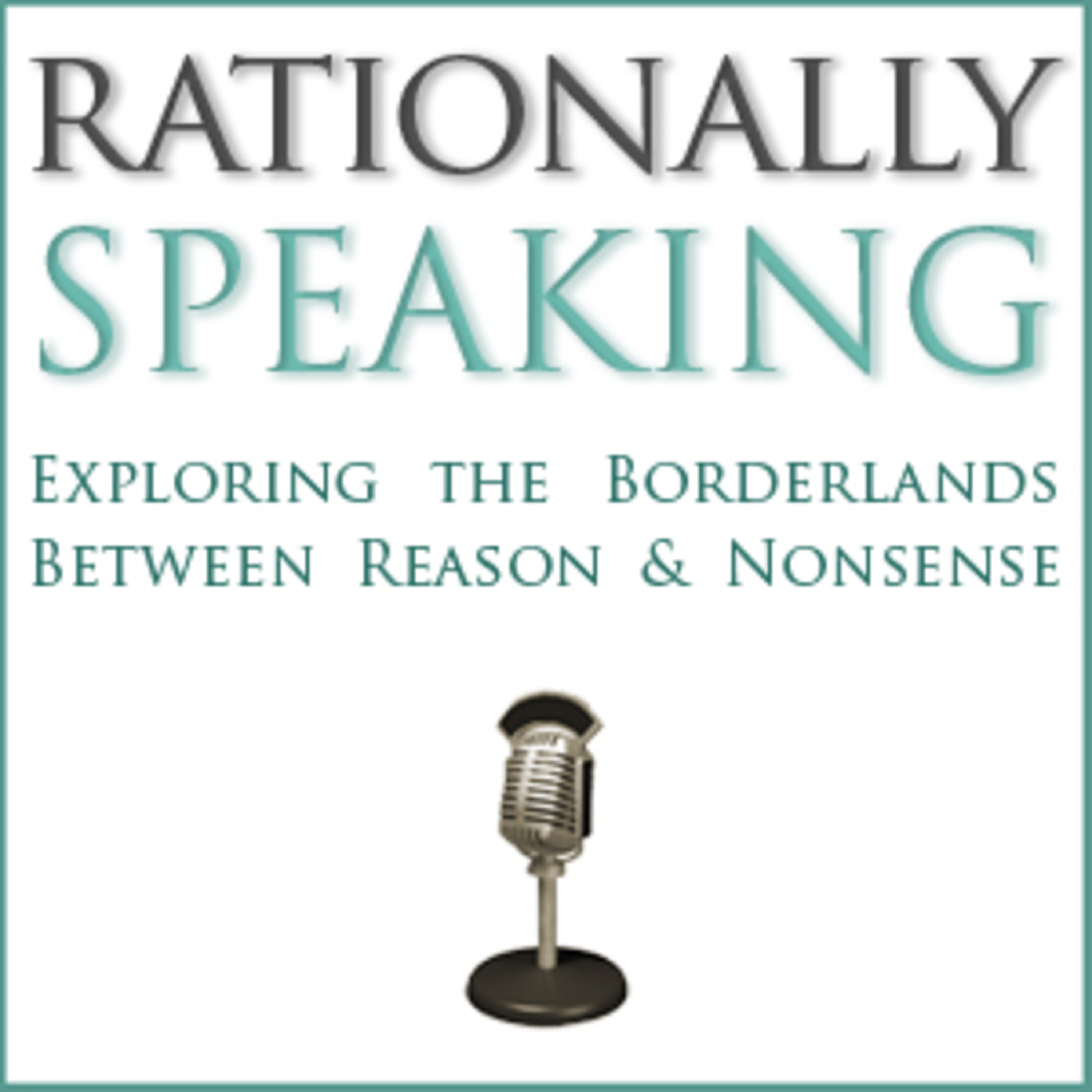 Sped up Rationally SpeakingRationally Speaking #139 - Eric Schwitzgebel on "Moral hypocrisy: why doesn't knowing about ethics make people more ethical?"You might expect that professional ethicists -- people whose job it is to determine which behaviors are ethical and why -- would behave more ethically than other people. You'd be wrong! This episode features philosopher Eric Schwitzgebel , who is well known for his work studying whether experts in ethics live up to their own standards. He and Julia discuss why the answer is "no," and explore questions like, "How do you decide how moral you're going to try to be?" Eric Schwitzgebel is a Professor of Philosophy at University of California at Riverside. He is the co-author (with Russell...2021-01-0343 min
Sped up Rationally SpeakingRationally Speaking #139 - Eric Schwitzgebel on "Moral hypocrisy: why doesn't knowing about ethics make people more ethical?"You might expect that professional ethicists -- people whose job it is to determine which behaviors are ethical and why -- would behave more ethically than other people. You'd be wrong! This episode features philosopher Eric Schwitzgebel , who is well known for his work studying whether experts in ethics live up to their own standards. He and Julia discuss why the answer is "no," and explore questions like, "How do you decide how moral you're going to try to be?" Eric Schwitzgebel is a Professor of Philosophy at University of California at Riverside. He is the co-author (with Russell...2021-01-0343 min Sentientism9: "We need to systematise benevolence" - David Pearce - Sentientist ConversationsDavid Pearce is a philosopher & co-founder of the World Transhumanist Organisation, now Humanity+. His work centres on "The Hedonistic Imperative" - a moral obligation to work towards the abolition of suffering in all sentient life."
You can find the video of our conversation here.
We discuss:
- "The Hedonistic Imperative"
- Using biotech to abolish suffering & replace it with gradients of hedonic bliss
- Compassion, Buddhism, negative utilitarianism & the need to systematise benevolence
- The "3 supers" of Transhumanism: super intelligence, super longevity & super happiness + why non-humans should b...2020-12-0457 min
Sentientism9: "We need to systematise benevolence" - David Pearce - Sentientist ConversationsDavid Pearce is a philosopher & co-founder of the World Transhumanist Organisation, now Humanity+. His work centres on "The Hedonistic Imperative" - a moral obligation to work towards the abolition of suffering in all sentient life."
You can find the video of our conversation here.
We discuss:
- "The Hedonistic Imperative"
- Using biotech to abolish suffering & replace it with gradients of hedonic bliss
- Compassion, Buddhism, negative utilitarianism & the need to systematise benevolence
- The "3 supers" of Transhumanism: super intelligence, super longevity & super happiness + why non-humans should b...2020-12-0457 min Teoria ImpuraAlienígenas bizarros comprovam que o Brasil tem consciênciaPedro Chrismann (IBMEC-RJ), Guilherme Almeida (FGV-RJ) e Danilo Almeida (FURG) finalmente enfrentam a questão do momento: qual é a sensação de ser um país? Para explorar os mistérios da consciência, os três embarcam numa viagem interestelar entre zumbis filosóficos, polvos (“pólvos”?) desmontáveis e mamutes-formigueiros, guiados por Eric Schwitzgebel, autor de “If materialism is true, the United States is probably conscious”. Neste episódio, a posição materialista sobre a mente é posta à prova através de uma bateria de cenários bizarros. Por fim, Pedro manda um grande dane-se para os “louquismos” metafísicos de Guilherme, enqu...2020-08-1754 min
Teoria ImpuraAlienígenas bizarros comprovam que o Brasil tem consciênciaPedro Chrismann (IBMEC-RJ), Guilherme Almeida (FGV-RJ) e Danilo Almeida (FURG) finalmente enfrentam a questão do momento: qual é a sensação de ser um país? Para explorar os mistérios da consciência, os três embarcam numa viagem interestelar entre zumbis filosóficos, polvos (“pólvos”?) desmontáveis e mamutes-formigueiros, guiados por Eric Schwitzgebel, autor de “If materialism is true, the United States is probably conscious”. Neste episódio, a posição materialista sobre a mente é posta à prova através de uma bateria de cenários bizarros. Por fim, Pedro manda um grande dane-se para os “louquismos” metafísicos de Guilherme, enqu...2020-08-1754 min Exploring RootsEp. 6 - What if human brains were replaced by machines?Ethics of AI and Consciousness
I sat down with philosophy professors Eric Schwitzgebel and Susan Schneider (author of Artificial You) to discuss the ethics of AI and to define some terms regarding the growing abilities of artificial intelligence.
To find more information on Professor Schwitzgebel and his work, visit https://faculty.ucr.edu/~eschwitz/.
To find more information on Professor Schneider and her work, visit https://schneiderwebsite.com/index.html.
My video-recorded interview with Professor Schwitzgebel can also be found on YouTube: https://youtu.be/wIY2YHtT4fA.
2020-05-2916 min
Exploring RootsEp. 6 - What if human brains were replaced by machines?Ethics of AI and Consciousness
I sat down with philosophy professors Eric Schwitzgebel and Susan Schneider (author of Artificial You) to discuss the ethics of AI and to define some terms regarding the growing abilities of artificial intelligence.
To find more information on Professor Schwitzgebel and his work, visit https://faculty.ucr.edu/~eschwitz/.
To find more information on Professor Schneider and her work, visit https://schneiderwebsite.com/index.html.
My video-recorded interview with Professor Schwitzgebel can also be found on YouTube: https://youtu.be/wIY2YHtT4fA.
2020-05-2916 min Escape PodEscape Pod 729: Gaze of Robot, Gaze of BirdAuthor : Eric Schwitzgebel Narrator : Ellora Sen-Gupta Host : Tina Connolly Audio Producer : Adam Pracht Discuss on Forums This story was first published by Clarkesworld Magazine in April, 2019. Gaze of Robot, Gaze of Bird By Eric Schwitzgebel First, an eye. The camera rose, swiveling on its joint, compiling initial scans of the […]
Source2020-04-2342 min
Escape PodEscape Pod 729: Gaze of Robot, Gaze of BirdAuthor : Eric Schwitzgebel Narrator : Ellora Sen-Gupta Host : Tina Connolly Audio Producer : Adam Pracht Discuss on Forums This story was first published by Clarkesworld Magazine in April, 2019. Gaze of Robot, Gaze of Bird By Eric Schwitzgebel First, an eye. The camera rose, swiveling on its joint, compiling initial scans of the […]
Source2020-04-2342 min Journal EntriesThe Unreliability of Naive Introspection with Eric SchwitzgebelHow well do you know your own feelings? Is our ability to know this about ourselves less reliable than what we know about the outside world around us? Is there anything we can do to make ourselves less "naive" and improve the reliability of introspection about conscious experiences?
Links and Resources
Eric Schwitzgebel
The Paper
The Splintered Mind
Alison Gopnik
Introspection
Self-Knowledge
Edward Titchener
Introspective Training Apprehensively Defended: Reflections on Titchener's Lab Manual
Paper Quotes
Descartes, I think, had it quite backwards when he said the mind—including especially current conscious experience—was bett...2020-04-0830 min
Journal EntriesThe Unreliability of Naive Introspection with Eric SchwitzgebelHow well do you know your own feelings? Is our ability to know this about ourselves less reliable than what we know about the outside world around us? Is there anything we can do to make ourselves less "naive" and improve the reliability of introspection about conscious experiences?
Links and Resources
Eric Schwitzgebel
The Paper
The Splintered Mind
Alison Gopnik
Introspection
Self-Knowledge
Edward Titchener
Introspective Training Apprehensively Defended: Reflections on Titchener's Lab Manual
Paper Quotes
Descartes, I think, had it quite backwards when he said the mind—including especially current conscious experience—was bett...2020-04-0830 min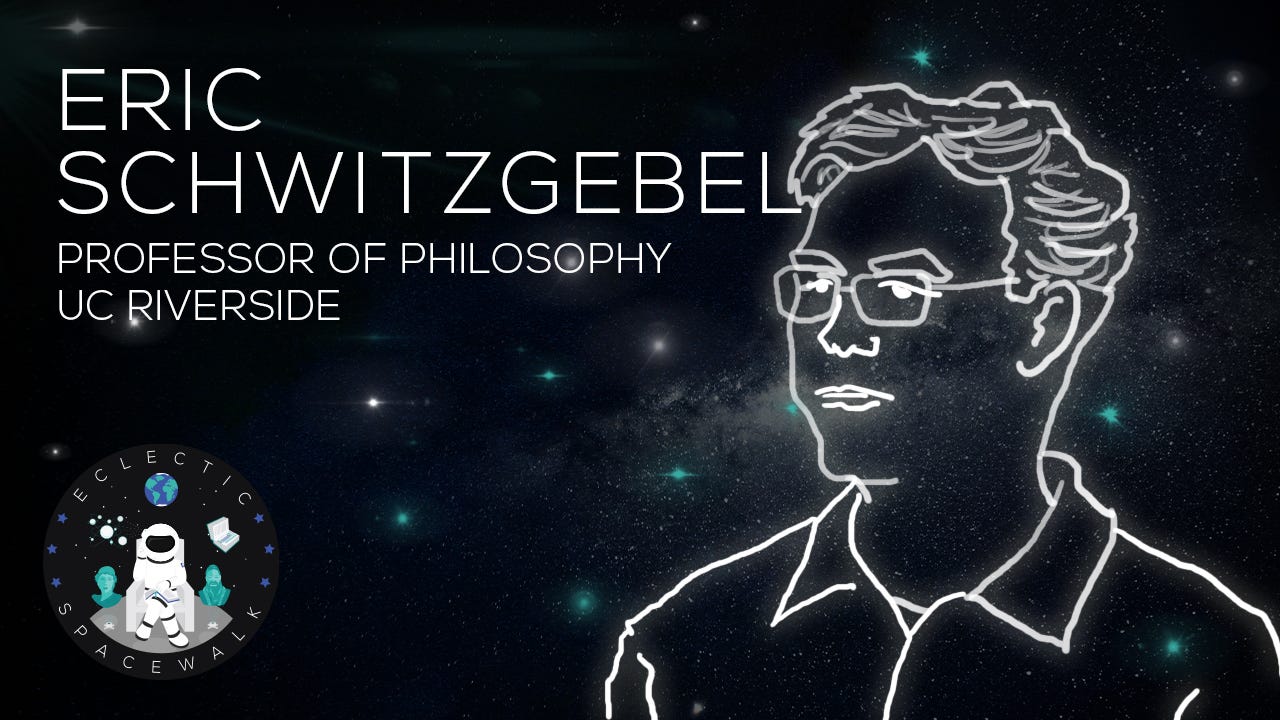 Eclectic SpacewalkConversations #9 - Eric SchwitzgebelA conversation with Professor of Philosophy, Eric Schwitzgebel—Read & Listen on SubstackRead Transcript on MediumListen on AnchorWatch on YouTubeHey Eclectic Spacewalkers!Just before the COVID-19-associated lockdowns in spring 2020, I sat down with Professor of Philosophy at the University of California, Riverside, Eric Schwitzgebel. His research areas of interest are philosophy of psychology, philosophy of mind, moral psychology, classical Chinese philosophy, epistemology, meta-philosophy, metaphysics, and science fiction.Along with teaching, Eric is a prolific writer who since 2006 has written over 1000 posts ab...2020-03-162h 03
Eclectic SpacewalkConversations #9 - Eric SchwitzgebelA conversation with Professor of Philosophy, Eric Schwitzgebel—Read & Listen on SubstackRead Transcript on MediumListen on AnchorWatch on YouTubeHey Eclectic Spacewalkers!Just before the COVID-19-associated lockdowns in spring 2020, I sat down with Professor of Philosophy at the University of California, Riverside, Eric Schwitzgebel. His research areas of interest are philosophy of psychology, philosophy of mind, moral psychology, classical Chinese philosophy, epistemology, meta-philosophy, metaphysics, and science fiction.Along with teaching, Eric is a prolific writer who since 2006 has written over 1000 posts ab...2020-03-162h 03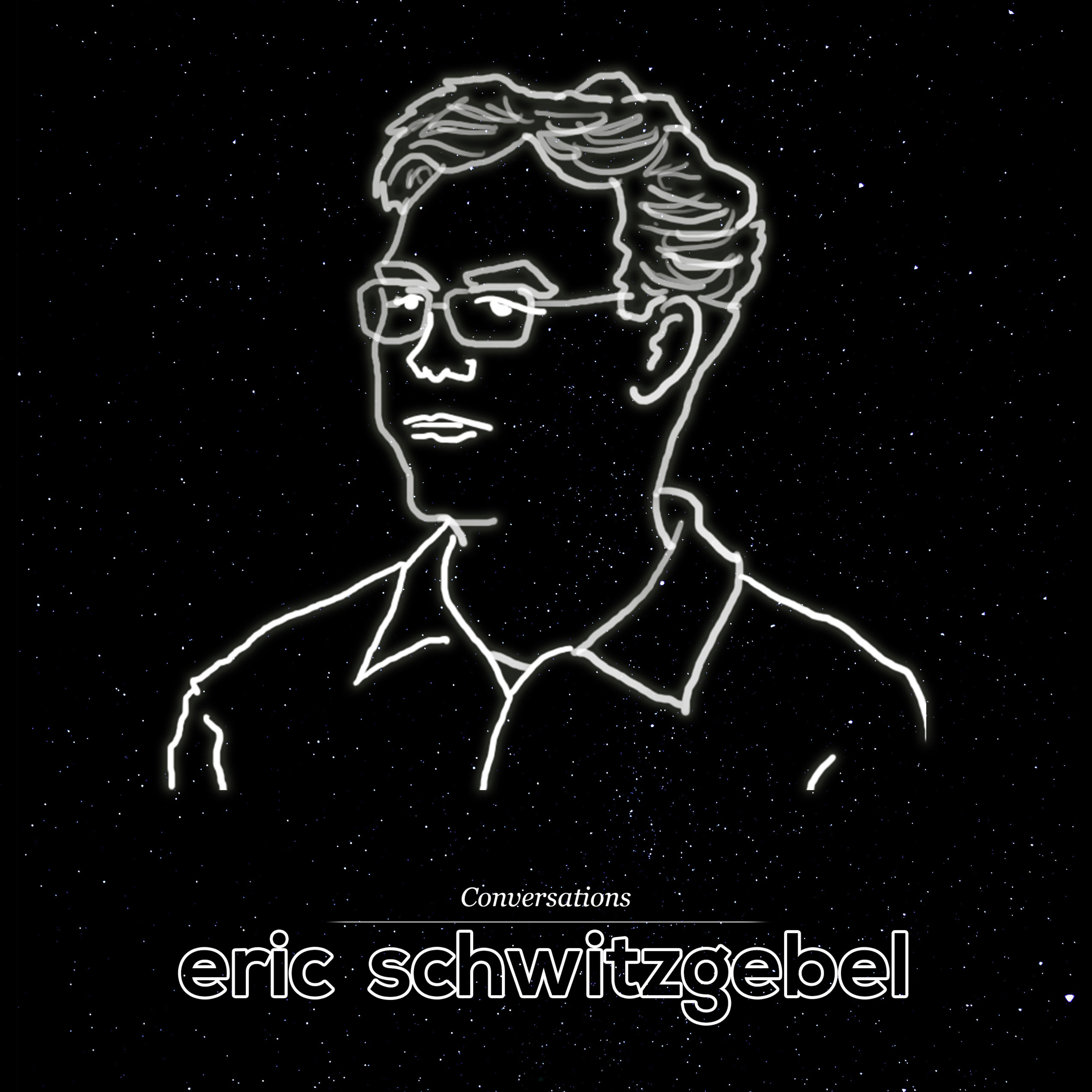 ConversationsConversations #9 - Eric SchwitzgebelA conversation with Professor of Philosophy, Eric Schwitzgebel—
This month, I sat down with Professor of Philosophy at the University of California - Riverside - Eric Schwitzgebel. Along with teaching, Eric is a prolific writer who since 2006 has written over 1000 posts about numerous subjects on his blog “The Splintered Mind.” His most recent book: A Theory of Jerks and other Philosophical Misadventures is a collection of 68 of Eric’s favorites.
Our conversation was as wide ranging as his resume and research. We talked about his personal history towards a academic career in philosophy. Being influenced as a gra...2020-03-162h 03
ConversationsConversations #9 - Eric SchwitzgebelA conversation with Professor of Philosophy, Eric Schwitzgebel—
This month, I sat down with Professor of Philosophy at the University of California - Riverside - Eric Schwitzgebel. Along with teaching, Eric is a prolific writer who since 2006 has written over 1000 posts about numerous subjects on his blog “The Splintered Mind.” His most recent book: A Theory of Jerks and other Philosophical Misadventures is a collection of 68 of Eric’s favorites.
Our conversation was as wide ranging as his resume and research. We talked about his personal history towards a academic career in philosophy. Being influenced as a gra...2020-03-162h 03 Spectology: The Science Fiction Book Club Podcast17.2: The Killing Moon post-read: Lucid Dreaming, Writing Compelling Villains, and Genre BlendingWe've finished The Killing Moon by NK Jemisin (https://amzn.to/2L9Wdh0), and have a lot to say about it as usual!
The book forced us to ask a lot of hard questions about the moral weight of actions of all of the main characters. We spend some time in a discussion on sympathetic villains and the importance of passing judgement on actions even while being sympathetic to motivations. We also discuss our own history with dreams, lucid dreaming, waking dreaming, and meditation.
Also the moon!
Related & discussed links (available at spectology.co...2019-08-271h 38
Spectology: The Science Fiction Book Club Podcast17.2: The Killing Moon post-read: Lucid Dreaming, Writing Compelling Villains, and Genre BlendingWe've finished The Killing Moon by NK Jemisin (https://amzn.to/2L9Wdh0), and have a lot to say about it as usual!
The book forced us to ask a lot of hard questions about the moral weight of actions of all of the main characters. We spend some time in a discussion on sympathetic villains and the importance of passing judgement on actions even while being sympathetic to motivations. We also discuss our own history with dreams, lucid dreaming, waking dreaming, and meditation.
Also the moon!
Related & discussed links (available at spectology.co...2019-08-271h 38 Clarkesworld MagazineGaze of Robot, Gaze of Bird by Eric Schwitzgebel (audio)This episode features "Gaze of Robot, Gaze of Bird" written by Eric Schwitzgebel. Published in the April 2019 issue of Clarkesworld Magazine and read by Kate Baker.
The text version of this story can be found at:
http://clarkesworldmagazine.com/schwitzgebel_04_19
Support us on Patreon at http://patreon.com/clarkesworld2019-04-2943 min
Clarkesworld MagazineGaze of Robot, Gaze of Bird by Eric Schwitzgebel (audio)This episode features "Gaze of Robot, Gaze of Bird" written by Eric Schwitzgebel. Published in the April 2019 issue of Clarkesworld Magazine and read by Kate Baker.
The text version of this story can be found at:
http://clarkesworldmagazine.com/schwitzgebel_04_19
Support us on Patreon at http://patreon.com/clarkesworld2019-04-2943 min Clarkesworld MagazineGaze of Robot, Gaze of Bird by Eric Schwitzgebel (audio)This episode features "Gaze of Robot, Gaze of Bird" written by Eric Schwitzgebel. Published in the April 2019 issue of Clarkesworld Magazine and read by Kate Baker.
The text version of this story can be found at:
https://clarkesworldmagazine.com/schwitzgebel_04_19
Support us on Patreon at https://www.patreon.com/join/clarkesworld?2019-04-2943 min
Clarkesworld MagazineGaze of Robot, Gaze of Bird by Eric Schwitzgebel (audio)This episode features "Gaze of Robot, Gaze of Bird" written by Eric Schwitzgebel. Published in the April 2019 issue of Clarkesworld Magazine and read by Kate Baker.
The text version of this story can be found at:
https://clarkesworldmagazine.com/schwitzgebel_04_19
Support us on Patreon at https://www.patreon.com/join/clarkesworld?2019-04-2943 min Spectology: The Science Fiction Book Club Podcast8.2: Children of Time post-read: Evolution, Language, Consciousness, and EmpathyWe've read Children of Time (https://amzn.to/2QqYKII), and boy do we have a lot to say about it! This episode we discuss the structure of the book, whether novels need strong characters, how animal consciousness might differ from our own, and how to stock a ship designed to re-seed the human race on another planet. Adrian gets to jabber on about the Baldwin Effect & octopuses, and Matt makes some sharp points about the importance of empathy. Truly this podcast represents the future liberals want.
As always, here's a list of stuff we discuss in the ep...2018-11-271h 56
Spectology: The Science Fiction Book Club Podcast8.2: Children of Time post-read: Evolution, Language, Consciousness, and EmpathyWe've read Children of Time (https://amzn.to/2QqYKII), and boy do we have a lot to say about it! This episode we discuss the structure of the book, whether novels need strong characters, how animal consciousness might differ from our own, and how to stock a ship designed to re-seed the human race on another planet. Adrian gets to jabber on about the Baldwin Effect & octopuses, and Matt makes some sharp points about the importance of empathy. Truly this podcast represents the future liberals want.
As always, here's a list of stuff we discuss in the ep...2018-11-271h 56 Hi-Phi NationChamber of FactsDo people of opposing political parties believe in different facts? The mantra at the moment is that they do, because of media echo chambers, motivated reasoning, and ideological blindspots. But a more careful look reveals a different answer, with perhaps even more startling consequences. This week we follow two conservative Republicans who consumed a liberal newsfeed for two weeks, and we look at the empirical and philosophical problem of the way partisanship affects belief in facts. Guest voices include Janalee Tobias, Trent Loos, philosophers Daniel Wodak and Eric Schwitzgebel, and political scientist John G. Bullock. The episode is brought...2018-07-2347 min
Hi-Phi NationChamber of FactsDo people of opposing political parties believe in different facts? The mantra at the moment is that they do, because of media echo chambers, motivated reasoning, and ideological blindspots. But a more careful look reveals a different answer, with perhaps even more startling consequences. This week we follow two conservative Republicans who consumed a liberal newsfeed for two weeks, and we look at the empirical and philosophical problem of the way partisanship affects belief in facts. Guest voices include Janalee Tobias, Trent Loos, philosophers Daniel Wodak and Eric Schwitzgebel, and political scientist John G. Bullock. The episode is brought...2018-07-2347 min Hi-Phi NationChamber of FactsDo people of opposing political parties believe in different facts? The mantra at the moment is that they do, because of media echo chambers, motivated reasoning, and ideological blindspots. But a more careful look reveals a different answer, with perhaps even more startling consequences. This week we follow two conservative Republicans who consumed a liberal newsfeed for two weeks, and we look at the empirical and philosophical problem of the way partisanship affects belief in facts. Guest voices include Janalee Tobias, Trent Loos, philosophers Daniel Wodak and Eric Schwitzgebel, and political scientist John G. Bullock. The episode is brought to...2018-07-2344 min
Hi-Phi NationChamber of FactsDo people of opposing political parties believe in different facts? The mantra at the moment is that they do, because of media echo chambers, motivated reasoning, and ideological blindspots. But a more careful look reveals a different answer, with perhaps even more startling consequences. This week we follow two conservative Republicans who consumed a liberal newsfeed for two weeks, and we look at the empirical and philosophical problem of the way partisanship affects belief in facts. Guest voices include Janalee Tobias, Trent Loos, philosophers Daniel Wodak and Eric Schwitzgebel, and political scientist John G. Bullock. The episode is brought to...2018-07-2344 min Cabbages and Kings50 - The Obelisk Gate (pt 1)
Kaleb Russell and Rose Eveleth join me to talk about The Obelisk Gate. Also Charles Payseur recommends short fiction about libraries.Thanks for your patience during an extended (and unplanned) hiatus. Hopefully the podcast will begin regularly monthly service now. You can also subscribe to my emails about having a hobby farm & being a Quaker, or follow my blogging about Tolkien.Recommended Stories - The Universal Library (written & translated Erik Born), in Mithila Review Issue #9Turing Machines of Babel - Eric Schwitzgebel, in Apex MagazineLibrary of Lost Things - Ma...2018-02-0133 min
Cabbages and Kings50 - The Obelisk Gate (pt 1)
Kaleb Russell and Rose Eveleth join me to talk about The Obelisk Gate. Also Charles Payseur recommends short fiction about libraries.Thanks for your patience during an extended (and unplanned) hiatus. Hopefully the podcast will begin regularly monthly service now. You can also subscribe to my emails about having a hobby farm & being a Quaker, or follow my blogging about Tolkien.Recommended Stories - The Universal Library (written & translated Erik Born), in Mithila Review Issue #9Turing Machines of Babel - Eric Schwitzgebel, in Apex MagazineLibrary of Lost Things - Ma...2018-02-0133 min Philosophy BitesEric Schwitzgebel on ScepticismHow do I know I'm not dreaming? This sort of question has puzzled philosophers for thousands of years. Eric Schwitzgebel discusses scepticism and its history with Nigel Warburton in this episode of the Philosophy Bites podcast. This episode of Philosophy Bites was sponsored by the Examining Ethics podcast from the Janet Prindle Institute for Ethics at DePauw University. You can subscribe to Examining Ethics on iTunes or listen to episodes at ExaminingEthics.Org 2018-01-1118 min
Philosophy BitesEric Schwitzgebel on ScepticismHow do I know I'm not dreaming? This sort of question has puzzled philosophers for thousands of years. Eric Schwitzgebel discusses scepticism and its history with Nigel Warburton in this episode of the Philosophy Bites podcast. This episode of Philosophy Bites was sponsored by the Examining Ethics podcast from the Janet Prindle Institute for Ethics at DePauw University. You can subscribe to Examining Ethics on iTunes or listen to episodes at ExaminingEthics.Org 2018-01-1118 min SeekingPlumbCan we know ourselves?I listened to an episode of Rationally Speaking with Julie Galef, where Dr. Eric Schwitzgebel espoused his belief that self-knowledge is not accurate and unknowable. Not accurate? Fair enough. Unknowable? Meh. Yes/No. Self-awareness and self-knowledge are complex things, really.2017-11-2608 min
SeekingPlumbCan we know ourselves?I listened to an episode of Rationally Speaking with Julie Galef, where Dr. Eric Schwitzgebel espoused his belief that self-knowledge is not accurate and unknowable. Not accurate? Fair enough. Unknowable? Meh. Yes/No. Self-awareness and self-knowledge are complex things, really.2017-11-2608 min Rationally Speaking PodcastRationally Speaking #196 - Eric Schwitzgebel on "Weird ideas and opaque minds"Philosopher Eric Schwitzgebel returns to the show to explore several related questions: His taxonomy of the three different styles of thinker -- "Truth," "Dare," and "Wonder" -- and whether one of them is better than the others. His case for why it's bad to interpret people "charitably." And his seemingly paradoxical claim that we are frequently wrong about our own conscious experience.2017-10-301h 05
Rationally Speaking PodcastRationally Speaking #196 - Eric Schwitzgebel on "Weird ideas and opaque minds"Philosopher Eric Schwitzgebel returns to the show to explore several related questions: His taxonomy of the three different styles of thinker -- "Truth," "Dare," and "Wonder" -- and whether one of them is better than the others. His case for why it's bad to interpret people "charitably." And his seemingly paradoxical claim that we are frequently wrong about our own conscious experience.2017-10-301h 05 Clarkesworld MagazineLittle /^^^\&- by Eric Schwitzgebel (audio)This episode features "Little /^^^\&-" written by Eric Schwitzgebel. Published in the September 2017 issue of Clarkesworld Magazine and read by Kate Baker.
The text version of this story can be found at:
https://clarkesworldmagazine.com/schwitzgebel_09_17
Support us on Patreon at https://www.patreon.com/join/clarkesworld?2017-09-2247 min
Clarkesworld MagazineLittle /^^^\&- by Eric Schwitzgebel (audio)This episode features "Little /^^^\&-" written by Eric Schwitzgebel. Published in the September 2017 issue of Clarkesworld Magazine and read by Kate Baker.
The text version of this story can be found at:
https://clarkesworldmagazine.com/schwitzgebel_09_17
Support us on Patreon at https://www.patreon.com/join/clarkesworld?2017-09-2247 min Uehiro Centre for Practical EthicsAiming for Moral MediocrityIn this talk, Eric Schwitzgebel considers whether it's acceptable to aim for peer-relative mediocrity. Most of us aim to be morally mediocre. That is, we aim to be about as morally good as our peers, not especially better, not especially worse. This mediocrity has two aspects. It is peer-relative rather than absolute, and it is middling rather than extreme. We look around us, notice how others are acting, then calibrate toward so-so. This is a somewhat bad way to be, but it's not a terribly bad way to be. We ought to be somewhat disappointed in ourselves. A possibly helpful...2017-06-2900 min
Uehiro Centre for Practical EthicsAiming for Moral MediocrityIn this talk, Eric Schwitzgebel considers whether it's acceptable to aim for peer-relative mediocrity. Most of us aim to be morally mediocre. That is, we aim to be about as morally good as our peers, not especially better, not especially worse. This mediocrity has two aspects. It is peer-relative rather than absolute, and it is middling rather than extreme. We look around us, notice how others are acting, then calibrate toward so-so. This is a somewhat bad way to be, but it's not a terribly bad way to be. We ought to be somewhat disappointed in ourselves. A possibly helpful...2017-06-2900 min Uehiro Centre for Practical EthicsAiming for Moral MediocrityIn this talk, Eric Schwitzgebel considers whether it's acceptable to aim for peer-relative mediocrity. Most of us aim to be morally mediocre. That is, we aim to be about as morally good as our peers, not especially better, not especially worse. This mediocrity has two aspects. It is peer-relative rather than absolute, and it is middling rather than extreme. We look around us, notice how others are acting, then calibrate toward so-so. This is a somewhat bad way to be, but it's not a terribly bad way to be. We ought to be somewhat disappointed in ourselves. A possibly helpful...2017-06-2943 min
Uehiro Centre for Practical EthicsAiming for Moral MediocrityIn this talk, Eric Schwitzgebel considers whether it's acceptable to aim for peer-relative mediocrity. Most of us aim to be morally mediocre. That is, we aim to be about as morally good as our peers, not especially better, not especially worse. This mediocrity has two aspects. It is peer-relative rather than absolute, and it is middling rather than extreme. We look around us, notice how others are acting, then calibrate toward so-so. This is a somewhat bad way to be, but it's not a terribly bad way to be. We ought to be somewhat disappointed in ourselves. A possibly helpful...2017-06-2943 min The Kingdoms of Evil Podcast – The Kingdoms of Evil99 Speculative Philosophy with Eric Schwitzgebel A year ago I talked with Eric Schwitzgebel about his new story Momentary Sage, his Philosophers’ Science Fiction / Speculative Fiction Recommendations, and the next moral frontier. Now it’s time to dust off that conversation in celebration of the publication of my novella PETROLEA! What’s this about … Continue reading →2016-10-2300 min
The Kingdoms of Evil Podcast – The Kingdoms of Evil99 Speculative Philosophy with Eric Schwitzgebel A year ago I talked with Eric Schwitzgebel about his new story Momentary Sage, his Philosophers’ Science Fiction / Speculative Fiction Recommendations, and the next moral frontier. Now it’s time to dust off that conversation in celebration of the publication of my novella PETROLEA! What’s this about … Continue reading →2016-10-2300 min Rationally Speaking PodcastRationally Speaking #166 - Eric Schwitzgebel on "Why you should expect the truth to be crazy"Some theories violate common sense so wildly that you want to just reject them out of hand. For example, "The United States is conscious," or "The most moral act would be to replace all living beings with an orgasmic blob." On the other hand, many theories in physics that sounded similarly crazy turned out to be very well-supported (think of quantum theory, or relativity). So what role should "common sense" play in evaluating new theories? This episode features a discussion with philosopher Eric Schwitzgebel on his theory of "Crazyism," that we should expect the truth to be at least a...2016-08-2153 min
Rationally Speaking PodcastRationally Speaking #166 - Eric Schwitzgebel on "Why you should expect the truth to be crazy"Some theories violate common sense so wildly that you want to just reject them out of hand. For example, "The United States is conscious," or "The most moral act would be to replace all living beings with an orgasmic blob." On the other hand, many theories in physics that sounded similarly crazy turned out to be very well-supported (think of quantum theory, or relativity). So what role should "common sense" play in evaluating new theories? This episode features a discussion with philosopher Eric Schwitzgebel on his theory of "Crazyism," that we should expect the truth to be at least a...2016-08-2153 min Clarkesworld MagazineFish Dance by Eric Schwitzgebel (audio)Our second podcast for July is “Fish Dance” written by Eric Schwitzgebel and read by Kate Baker.2016-07-1938 min
Clarkesworld MagazineFish Dance by Eric Schwitzgebel (audio)Our second podcast for July is “Fish Dance” written by Eric Schwitzgebel and read by Kate Baker.2016-07-1938 min Very Bad WizardsOn the Moral Nature of Nazis, Jerks, and Ethicists (with Eric Schwitzgebel)Special guest Eric Schwitzgebel joins David and Tamler to discuss the moral behavior (or lack thereof) of ethicists. Does moral reflection make us better people, or does it just give us better excuses to be immoral? Who's more right about human nature--Mencius or Xun Zi? What did Kant have against bastards and masturbating? Plus, we talk about jerks, robot cars, and killing baby Hitler. (Godwin's Law within 1:42--might be a new record for us). Links Eric Schwitzgebel publications. (Has links to all the discussed papers). Why Self-Driving Cars Must be Programmed to Kill [technologyreview.com] Bonnefon, J. F., S...2015-11-091h 20
Very Bad WizardsOn the Moral Nature of Nazis, Jerks, and Ethicists (with Eric Schwitzgebel)Special guest Eric Schwitzgebel joins David and Tamler to discuss the moral behavior (or lack thereof) of ethicists. Does moral reflection make us better people, or does it just give us better excuses to be immoral? Who's more right about human nature--Mencius or Xun Zi? What did Kant have against bastards and masturbating? Plus, we talk about jerks, robot cars, and killing baby Hitler. (Godwin's Law within 1:42--might be a new record for us). Links Eric Schwitzgebel publications. (Has links to all the discussed papers). Why Self-Driving Cars Must be Programmed to Kill [technologyreview.com] Bonnefon, J. F., S...2015-11-091h 20 Very Bad WizardsA Golden Shower of GuestsDave and Tamler celebrate their 75th episode by welcoming six BFFs of the podcast and asking them to share the biggest thing they've changed their minds about in their professional careers. You'll hear Dan Ariely on our moral duty to take science into the real world, Laurie Santos on the the role of neuroscience in explaining psychological findings, Yoel Inbar on what it means to do good science as a psychologist, Eric Schwitzgebel on his metaphysical epiphany about materialism, Nina Strohminger on breaking-up with priming research, and Sam Harris on Artificial Intelligence and its perils, and his recently changed vi...2015-10-062h 29
Very Bad WizardsA Golden Shower of GuestsDave and Tamler celebrate their 75th episode by welcoming six BFFs of the podcast and asking them to share the biggest thing they've changed their minds about in their professional careers. You'll hear Dan Ariely on our moral duty to take science into the real world, Laurie Santos on the the role of neuroscience in explaining psychological findings, Yoel Inbar on what it means to do good science as a psychologist, Eric Schwitzgebel on his metaphysical epiphany about materialism, Nina Strohminger on breaking-up with priming research, and Sam Harris on Artificial Intelligence and its perils, and his recently changed vi...2015-10-062h 29 Rationally Speaking PodcastRationally Speaking #139 - Eric Schwitzgebel on "Moral hypocrisy: why doesn't knowing about ethics make people more ethical?"You might expect that professional ethicists -- people whose job it is to determine which behaviors are ethical and why -- would behave more ethically than other people. You'd be wrong! This episode features philosopher Eric Schwitzgebel , who is well known for his work studying whether experts in ethics live up to their own standards. He and Julia discuss why the answer is "no," and explore questions like, "How do you decide how moral you're going to try to be?" Eric Schwitzgebel is a Professor of Philosophy at University of California at Riverside. He is the co-author...2015-07-2648 min
Rationally Speaking PodcastRationally Speaking #139 - Eric Schwitzgebel on "Moral hypocrisy: why doesn't knowing about ethics make people more ethical?"You might expect that professional ethicists -- people whose job it is to determine which behaviors are ethical and why -- would behave more ethically than other people. You'd be wrong! This episode features philosopher Eric Schwitzgebel , who is well known for his work studying whether experts in ethics live up to their own standards. He and Julia discuss why the answer is "no," and explore questions like, "How do you decide how moral you're going to try to be?" Eric Schwitzgebel is a Professor of Philosophy at University of California at Riverside. He is the co-author...2015-07-2648 min StarShipSofaStarShipSofa No 392 Mercurio D Rivera and R Scott Bakker and Eric SchwitzgebelComing Up…Short Fiction: Reinstalling Eden, by R. Scott Bakker and Eric SchwitzgebelOriginally published in Nature magazine.R. Scott Bakker has written eight novels translated into over dozen languages, including Neuropath, a dystopic meditation on the cultural impact of cognitive science, and the nihilistic epic fantasy series, The Prince of Nothing. He lives in London, Ontario with his wife and his daughter.Eric Schwitzgebel is a professor of philosophy at University of California, Riverside. His short fiction has appeared in The Magazine of Fantasy and Science Fiction, Nature, Weird Tales,......2015-06-241h 18
StarShipSofaStarShipSofa No 392 Mercurio D Rivera and R Scott Bakker and Eric SchwitzgebelComing Up…Short Fiction: Reinstalling Eden, by R. Scott Bakker and Eric SchwitzgebelOriginally published in Nature magazine.R. Scott Bakker has written eight novels translated into over dozen languages, including Neuropath, a dystopic meditation on the cultural impact of cognitive science, and the nihilistic epic fantasy series, The Prince of Nothing. He lives in London, Ontario with his wife and his daughter.Eric Schwitzgebel is a professor of philosophy at University of California, Riverside. His short fiction has appeared in The Magazine of Fantasy and Science Fiction, Nature, Weird Tales,......2015-06-241h 18 StarShipSofaStarShipSofa No 392 Mercurio D Rivera and R Scott Bakker and Eric SchwitzgebelComing Up…
Short Fiction: Reinstalling Eden, by R. Scott Bakker and Eric Schwitzgebel
Originally published in Nature magazine.
R. Scott Bakker has written eight novels translated into over dozen languages, including Neuropath, a dystopic meditation on the cultural impact of cognitive science, and the nihilistic epic fantasy series, The Prince of Nothing. He lives in London, Ontario with his wife and his daughter.
Eric Schwitzgebel is a professor of philosophy at University of California, Riverside. His short fiction has appeared in The Magazine of Fantasy and Science Fiction, Nature, Weird Tales,... ...2015-06-241h 19
StarShipSofaStarShipSofa No 392 Mercurio D Rivera and R Scott Bakker and Eric SchwitzgebelComing Up…
Short Fiction: Reinstalling Eden, by R. Scott Bakker and Eric Schwitzgebel
Originally published in Nature magazine.
R. Scott Bakker has written eight novels translated into over dozen languages, including Neuropath, a dystopic meditation on the cultural impact of cognitive science, and the nihilistic epic fantasy series, The Prince of Nothing. He lives in London, Ontario with his wife and his daughter.
Eric Schwitzgebel is a professor of philosophy at University of California, Riverside. His short fiction has appeared in The Magazine of Fantasy and Science Fiction, Nature, Weird Tales,... ...2015-06-241h 19 Very Bad WizardsAn Irresponsible Meta-Book Review of Joshua Greene's "Moral Tribes"Our most irresponsible episode ever! Dave and Tamler talk about two reviews of a book they haven't read--Joshua Greene's Moral Tribes: Emotion, Reason, and the Gap Between Us and Them--and feel only a little shame. (Since the recording, at least one of us has finished the book). Can Greene successfully debunk all non-utilitarian intuitions? Does Greene have a dark enough view of human nature? What would an ideal moral world look like? Will Dave ever stop making fun of Tamler's haunted boy haircut? We answer all of these questions and more. Plus we respond to a listener's email and read a co...2013-11-2655 min
Very Bad WizardsAn Irresponsible Meta-Book Review of Joshua Greene's "Moral Tribes"Our most irresponsible episode ever! Dave and Tamler talk about two reviews of a book they haven't read--Joshua Greene's Moral Tribes: Emotion, Reason, and the Gap Between Us and Them--and feel only a little shame. (Since the recording, at least one of us has finished the book). Can Greene successfully debunk all non-utilitarian intuitions? Does Greene have a dark enough view of human nature? What would an ideal moral world look like? Will Dave ever stop making fun of Tamler's haunted boy haircut? We answer all of these questions and more. Plus we respond to a listener's email and read a co...2013-11-2655 min